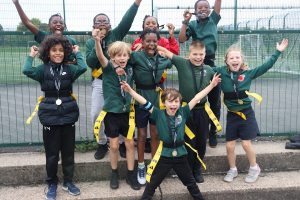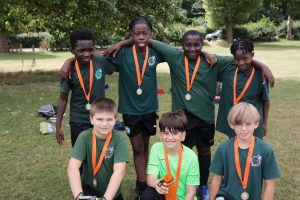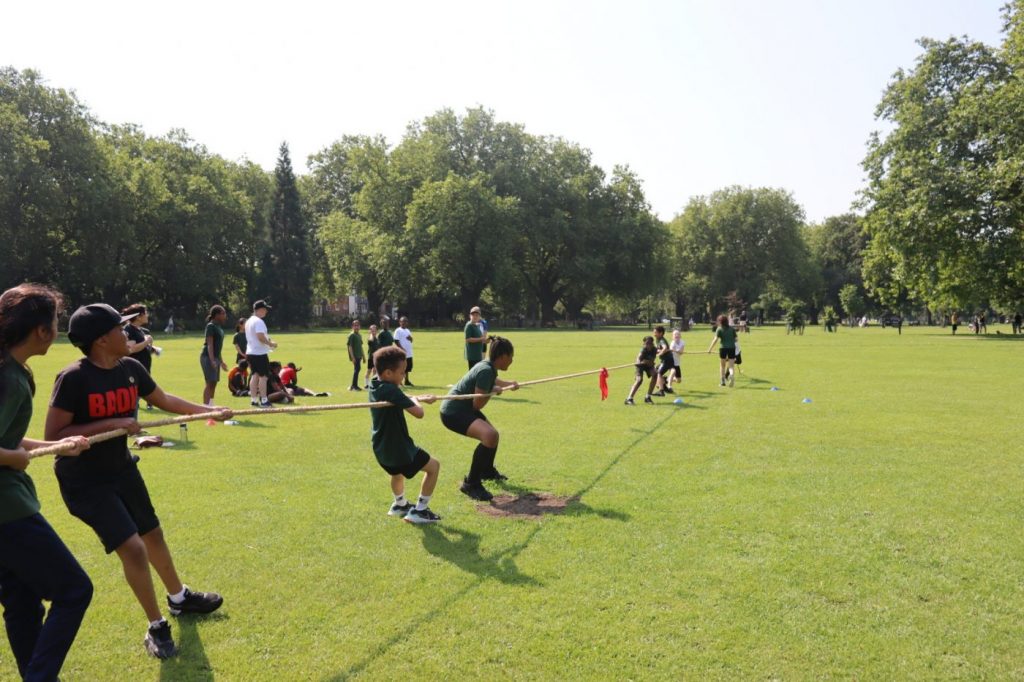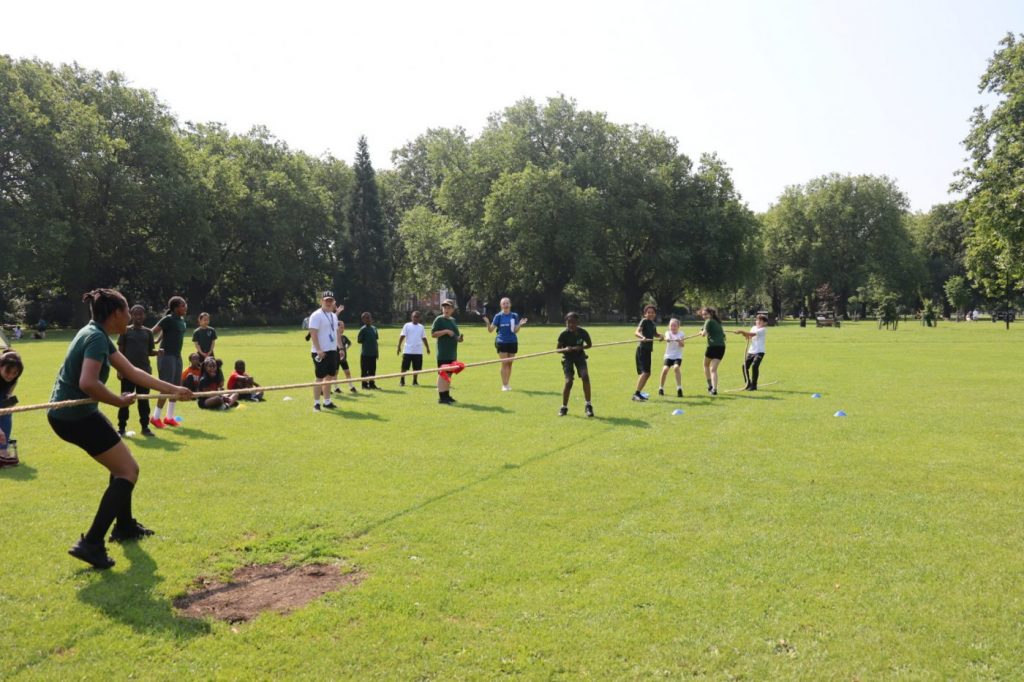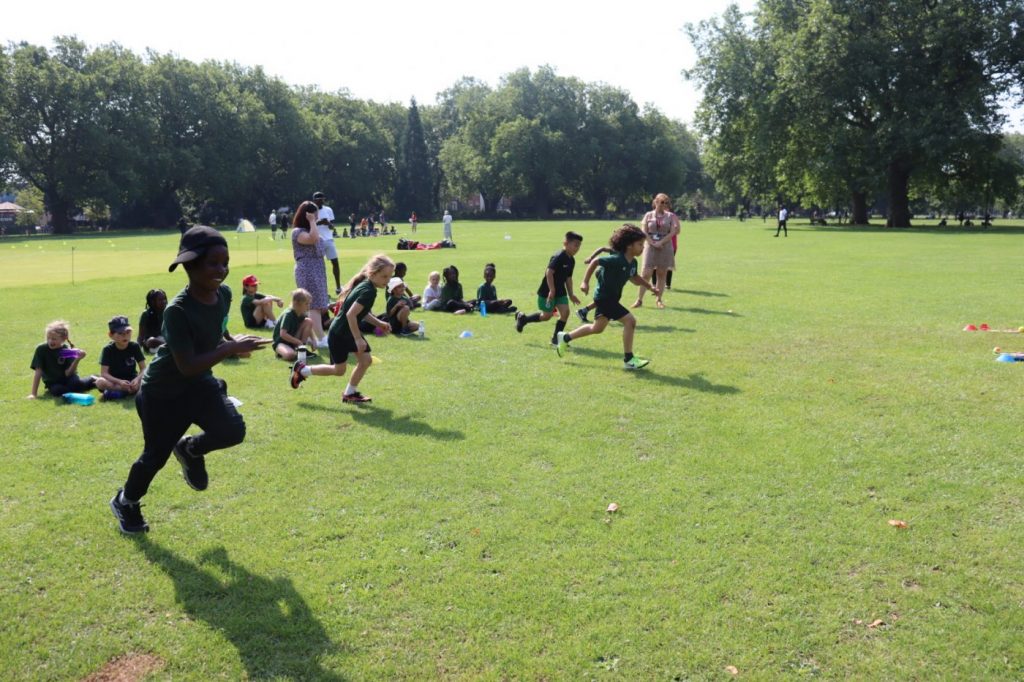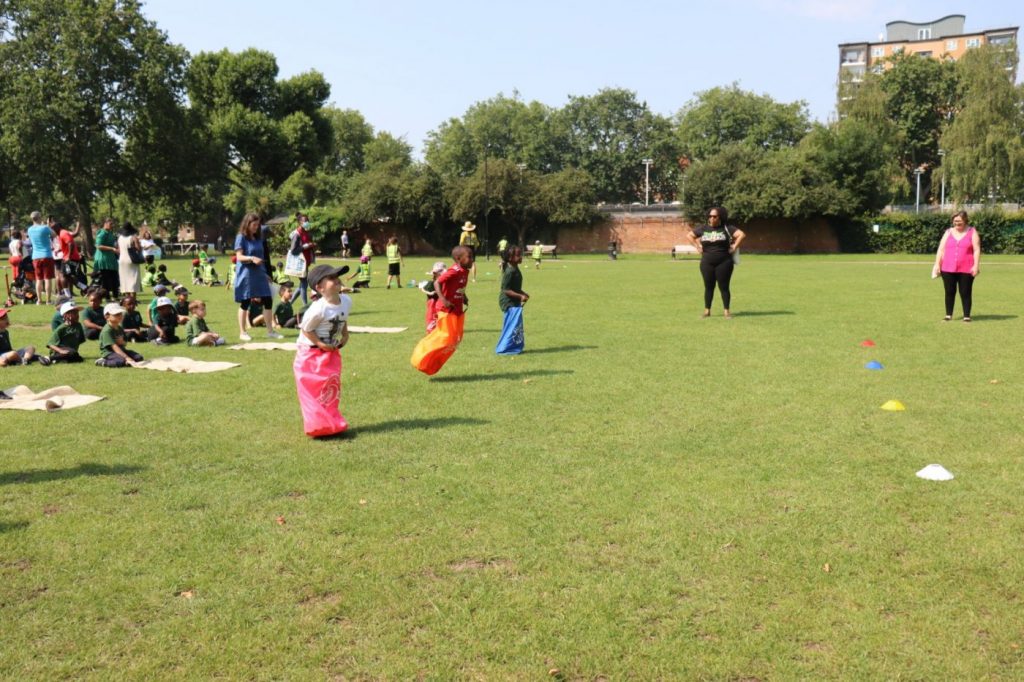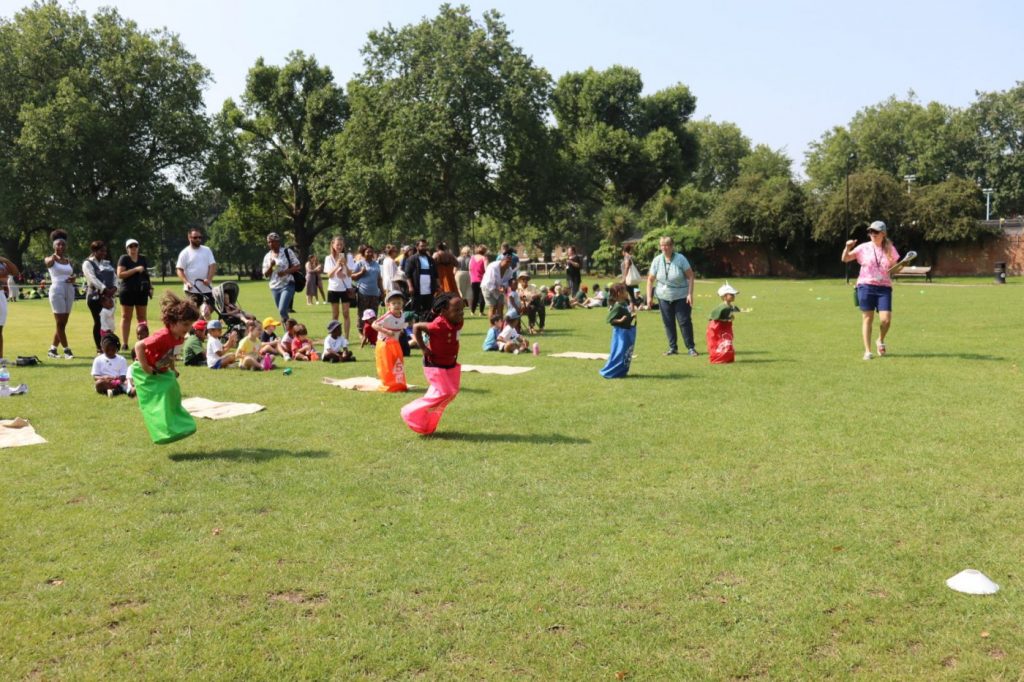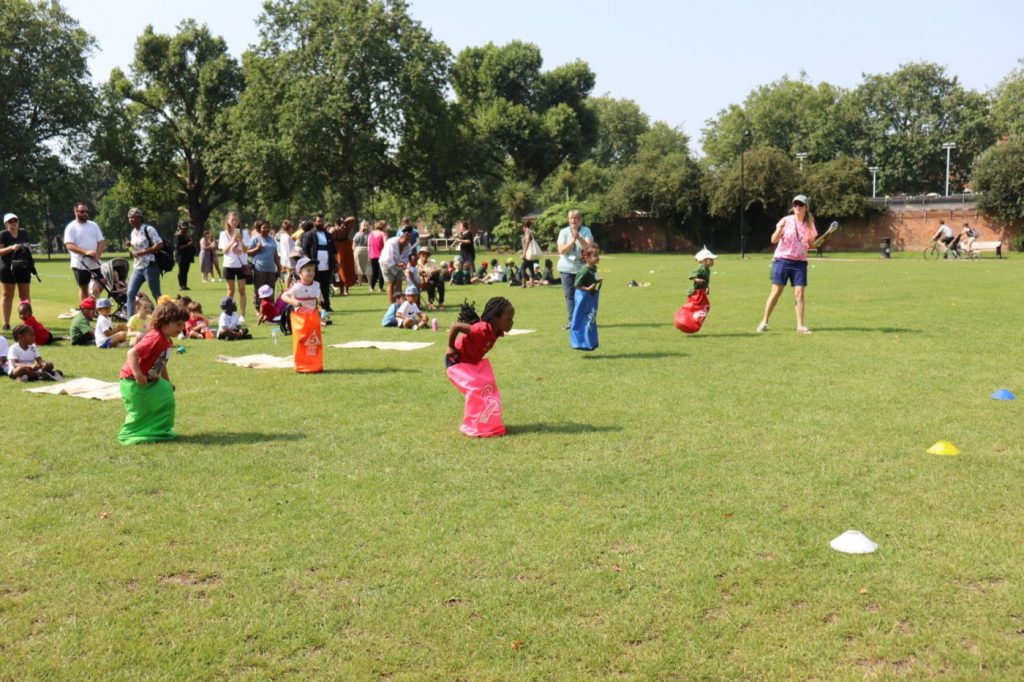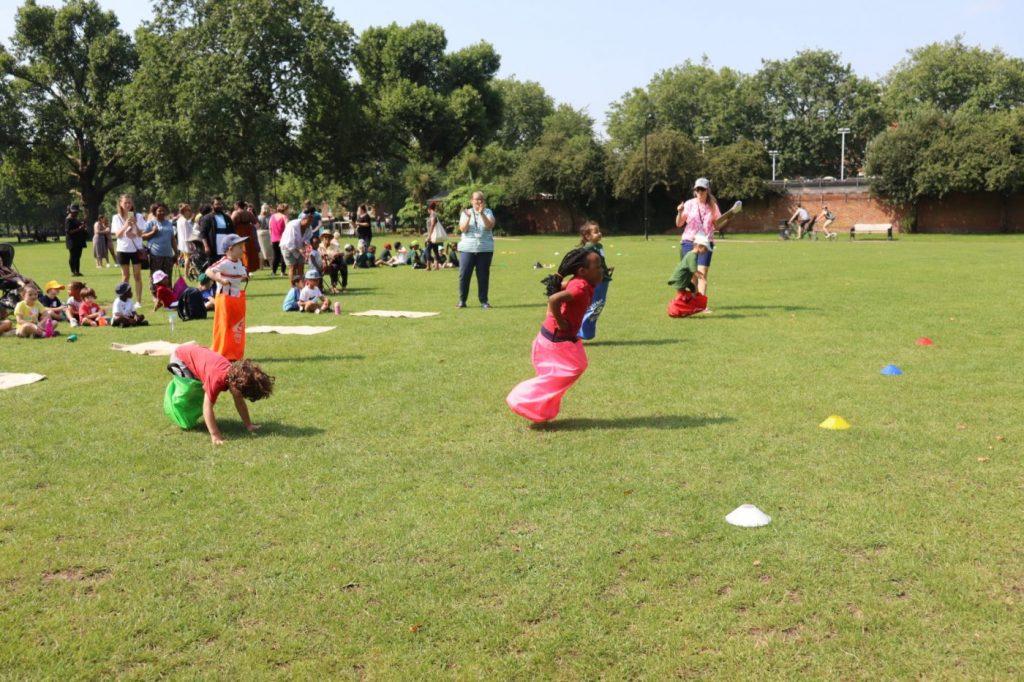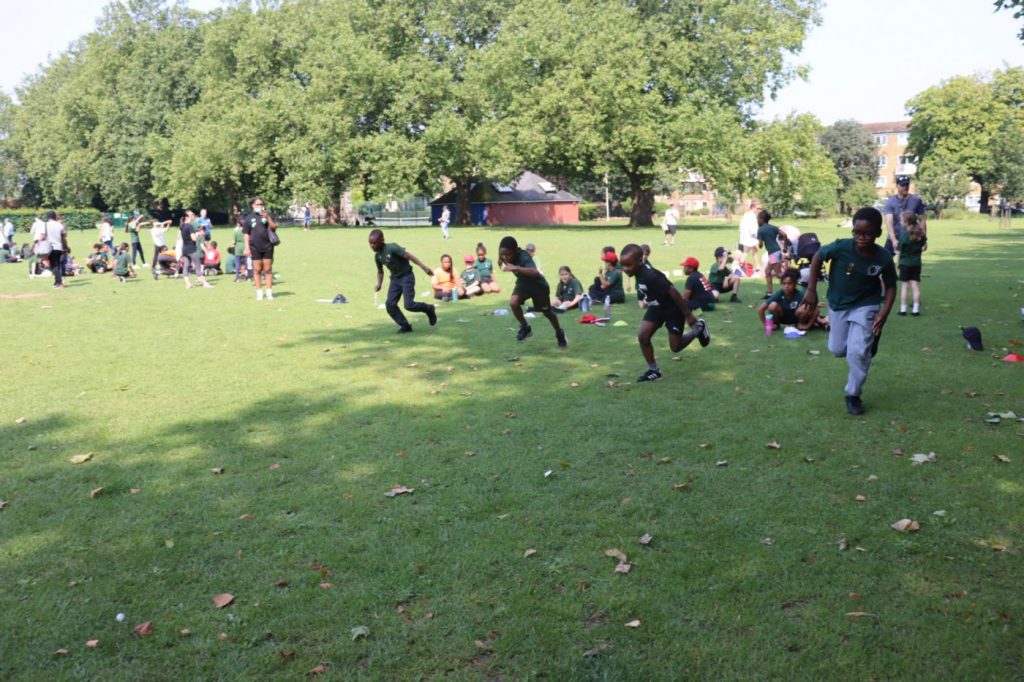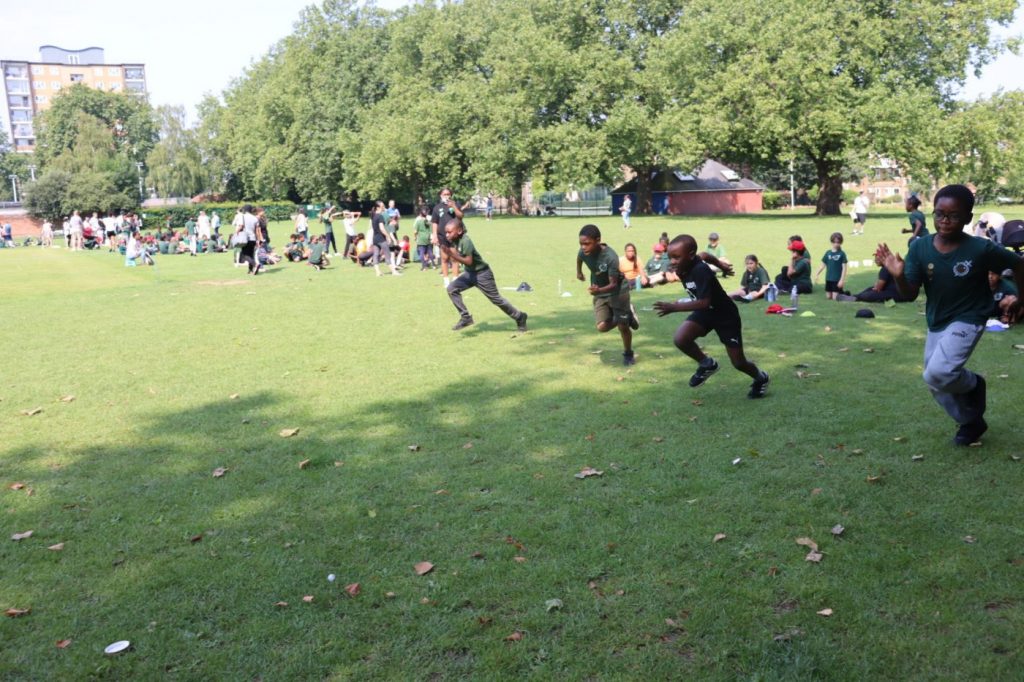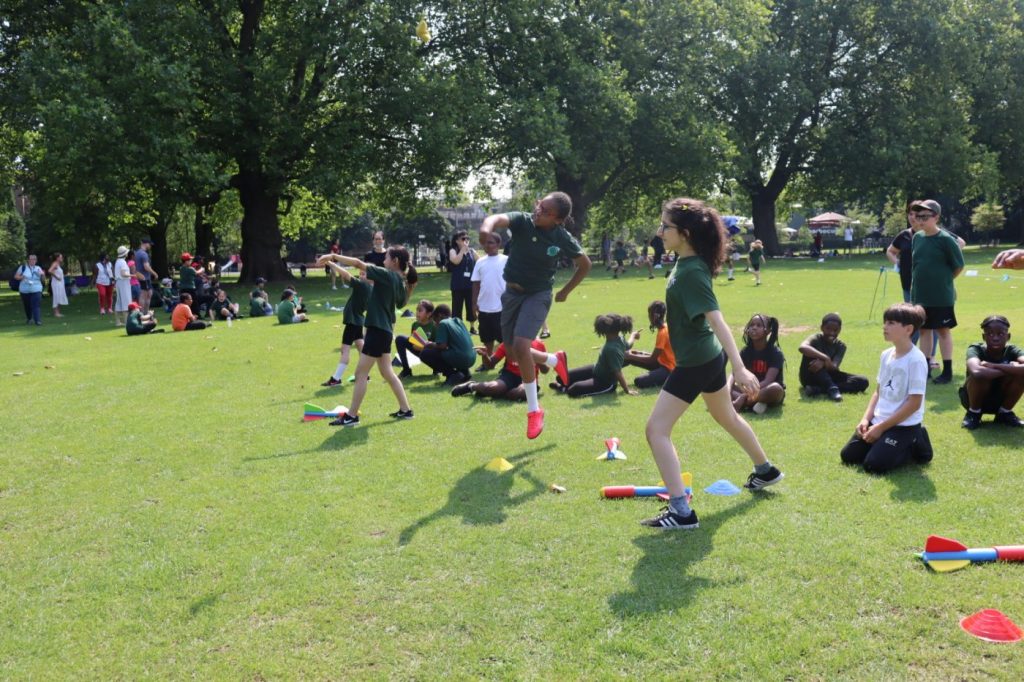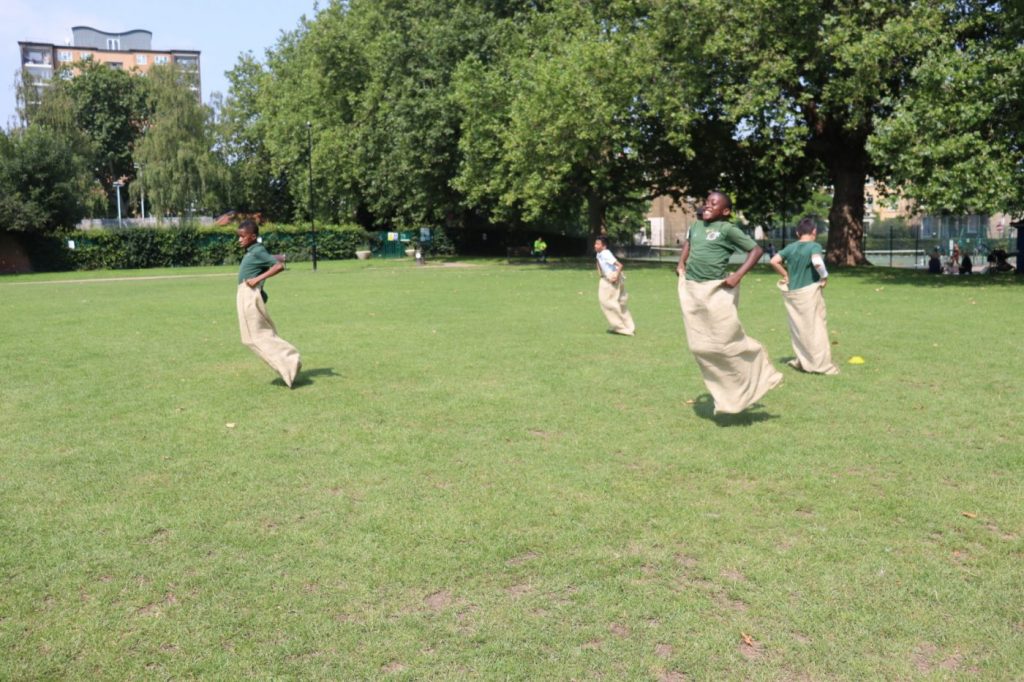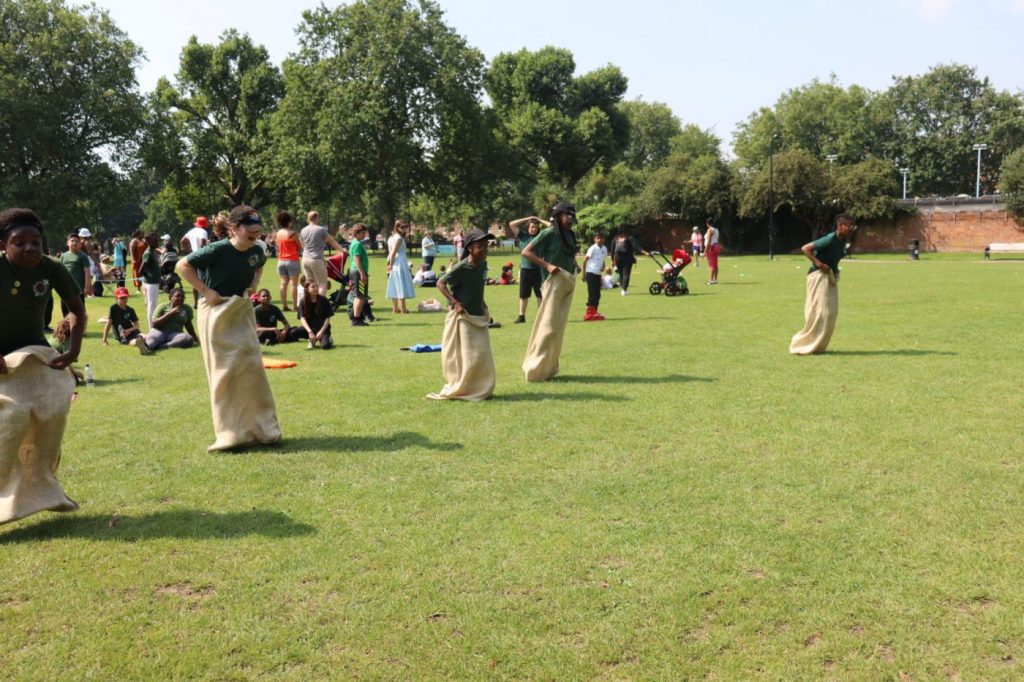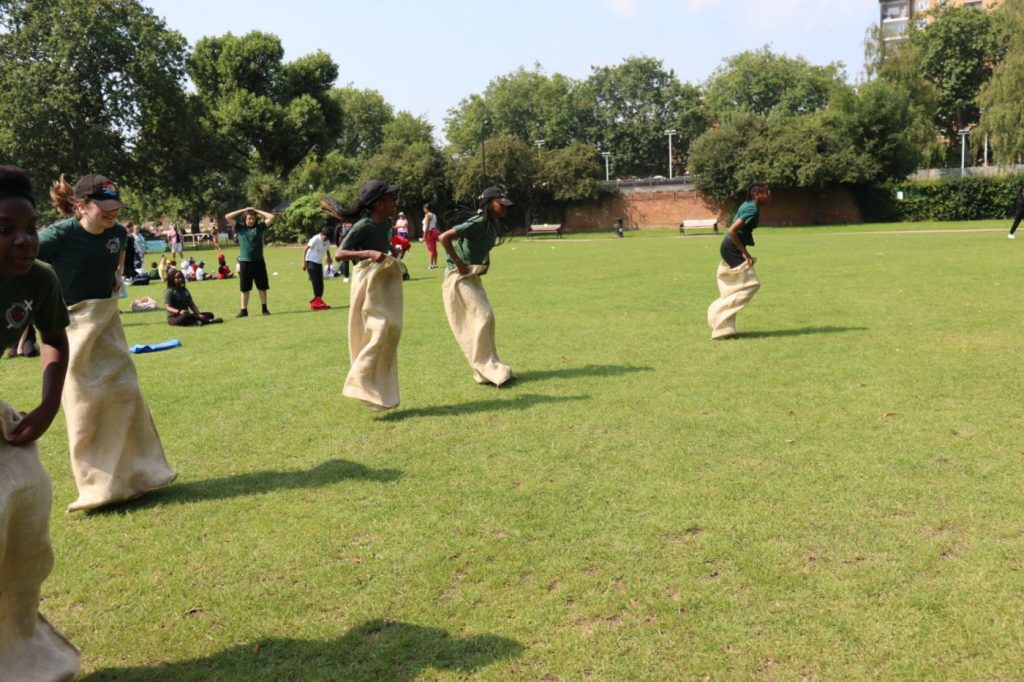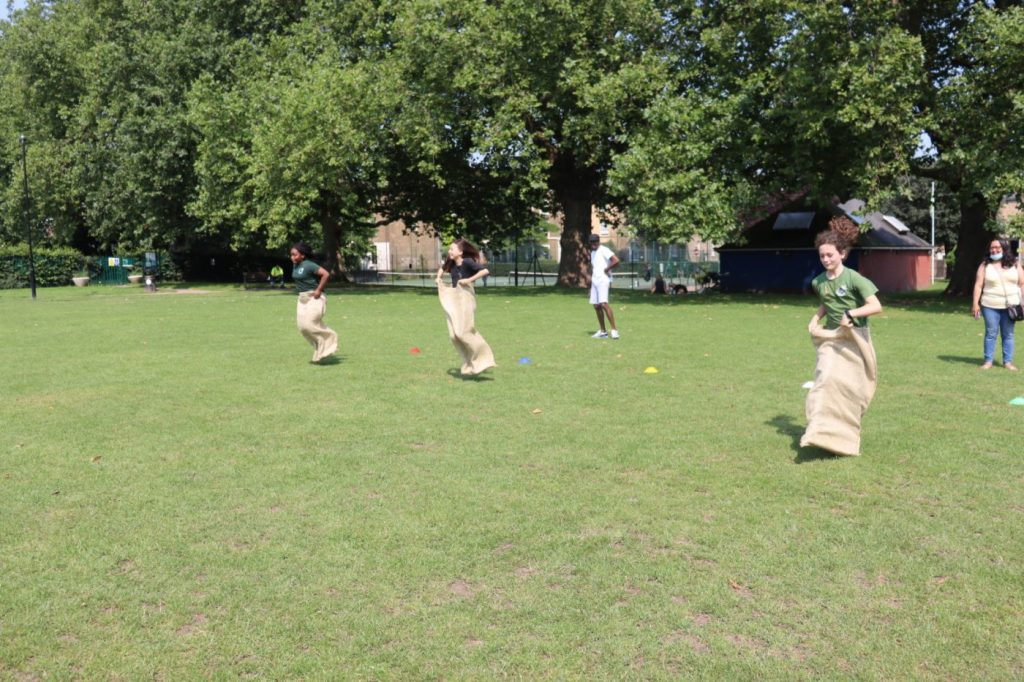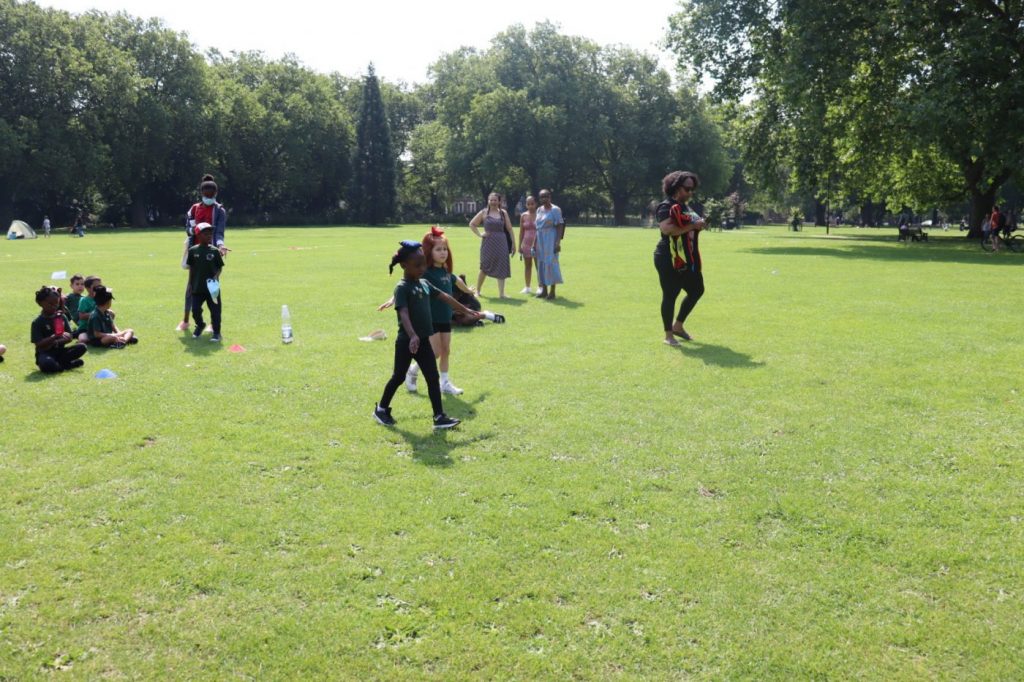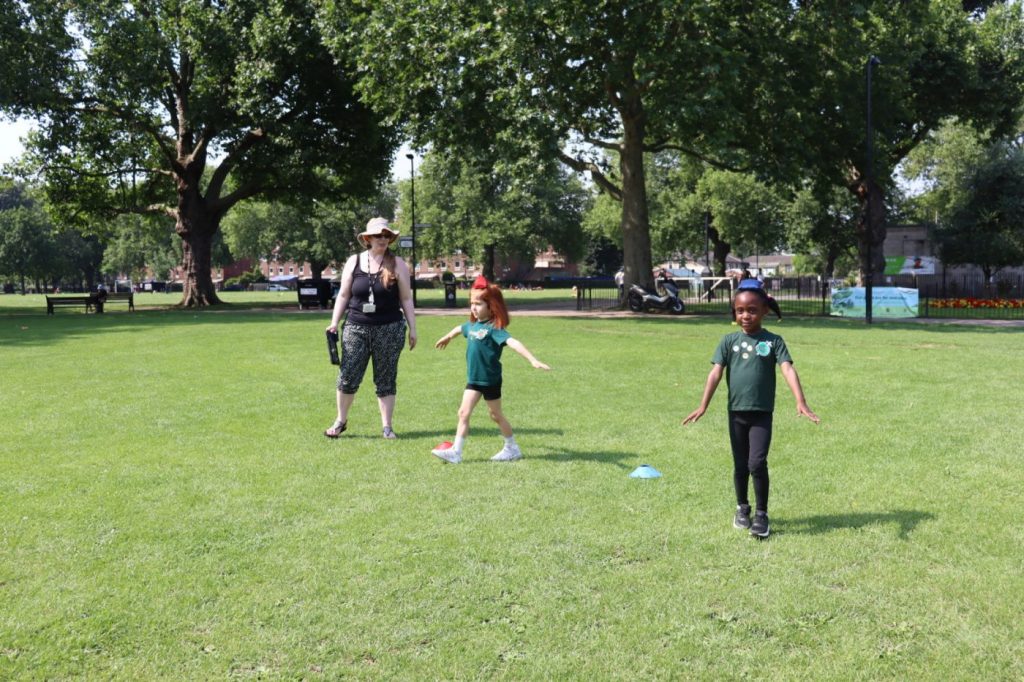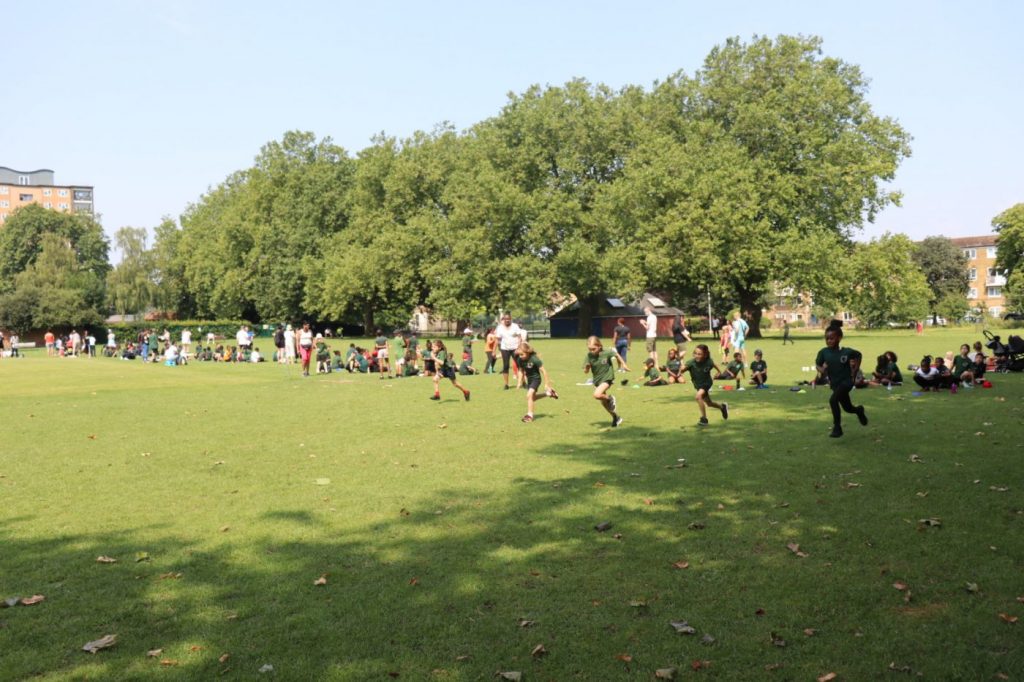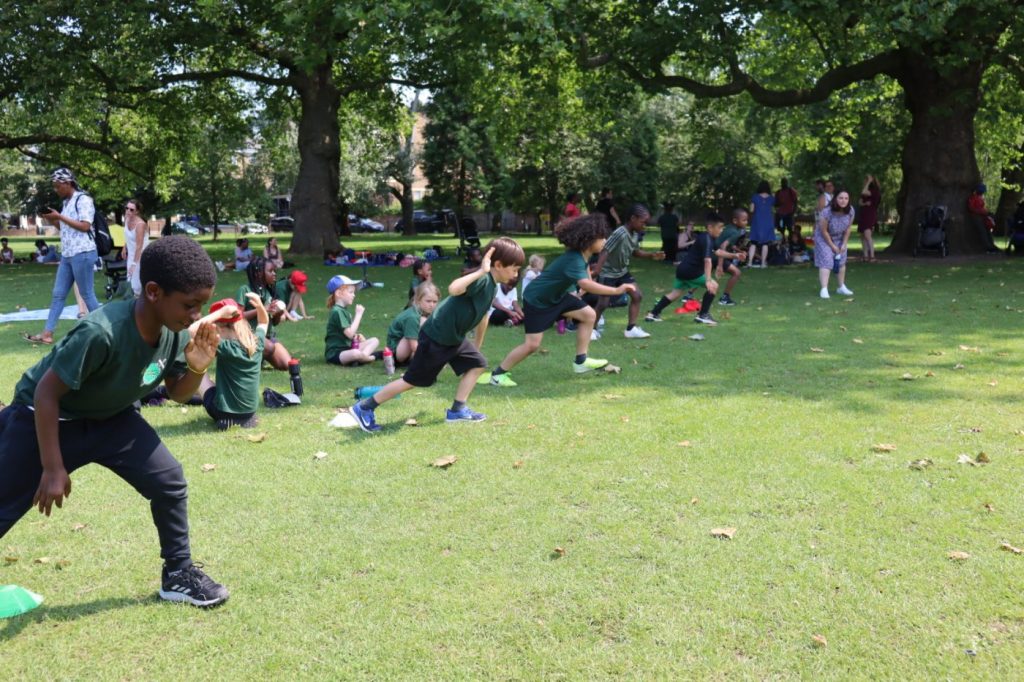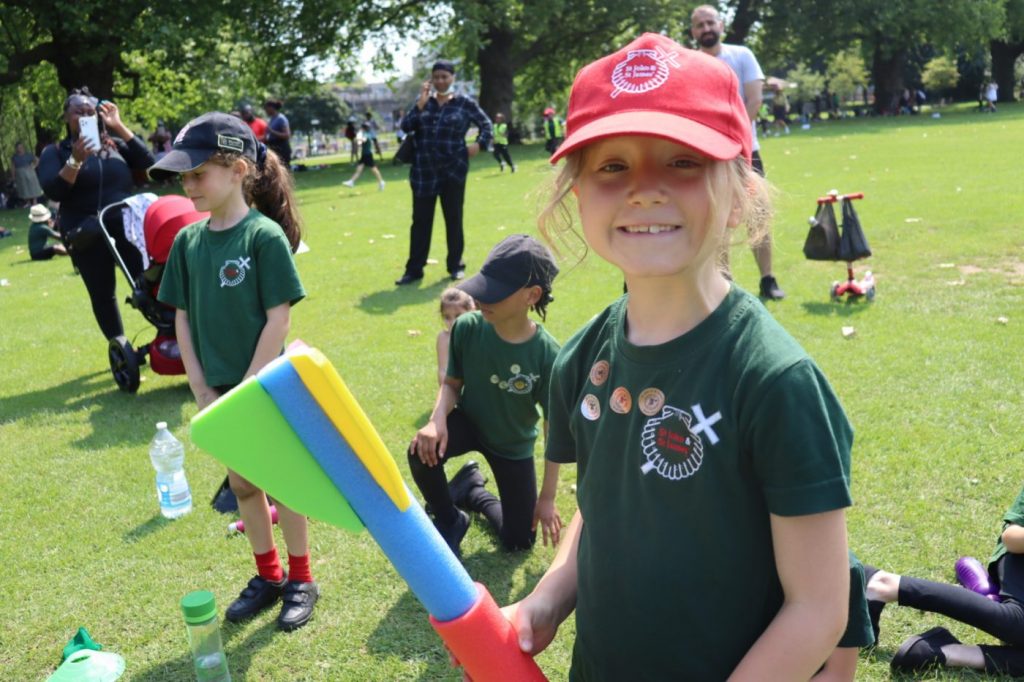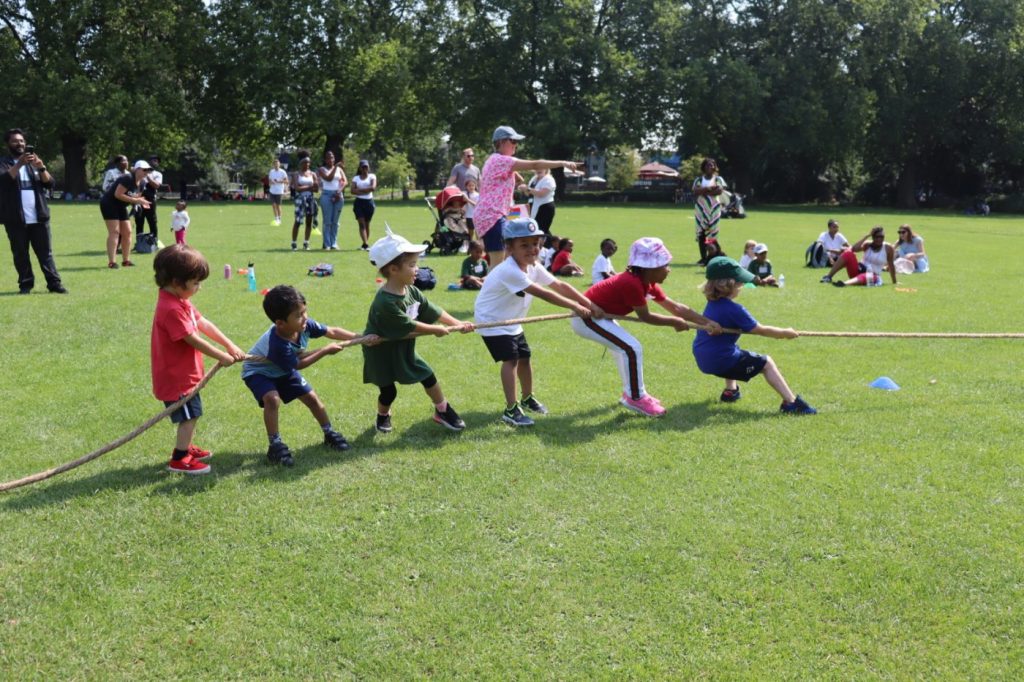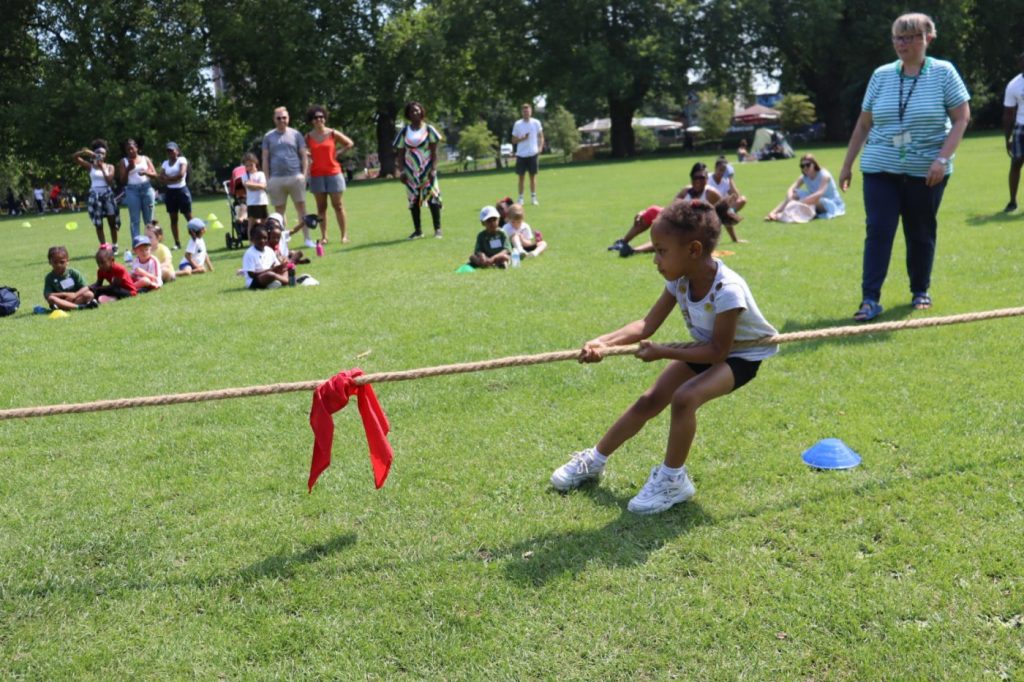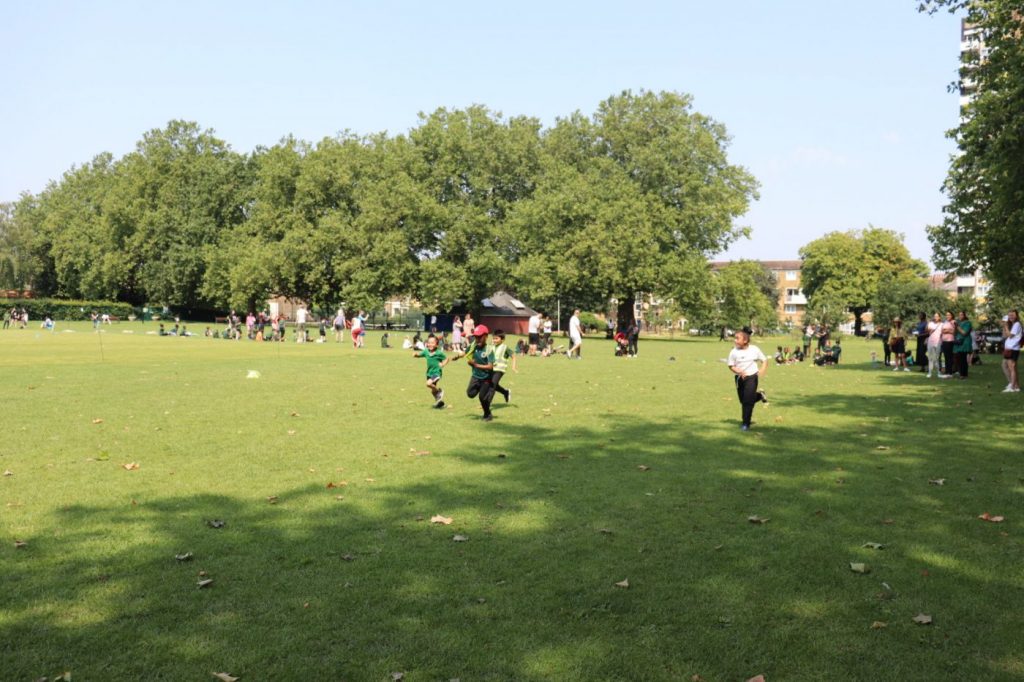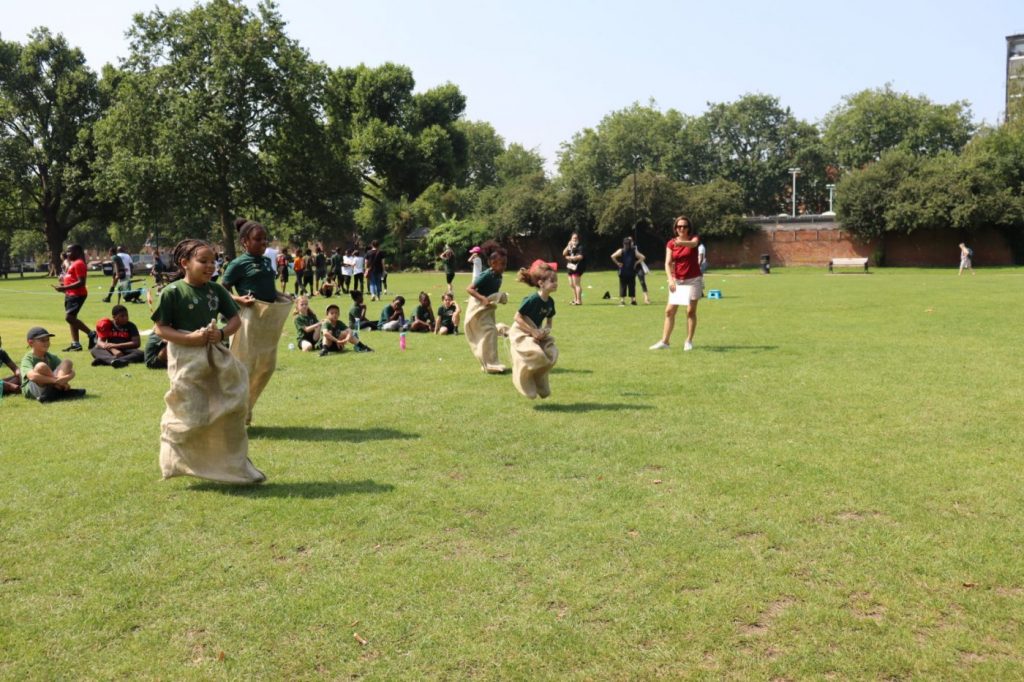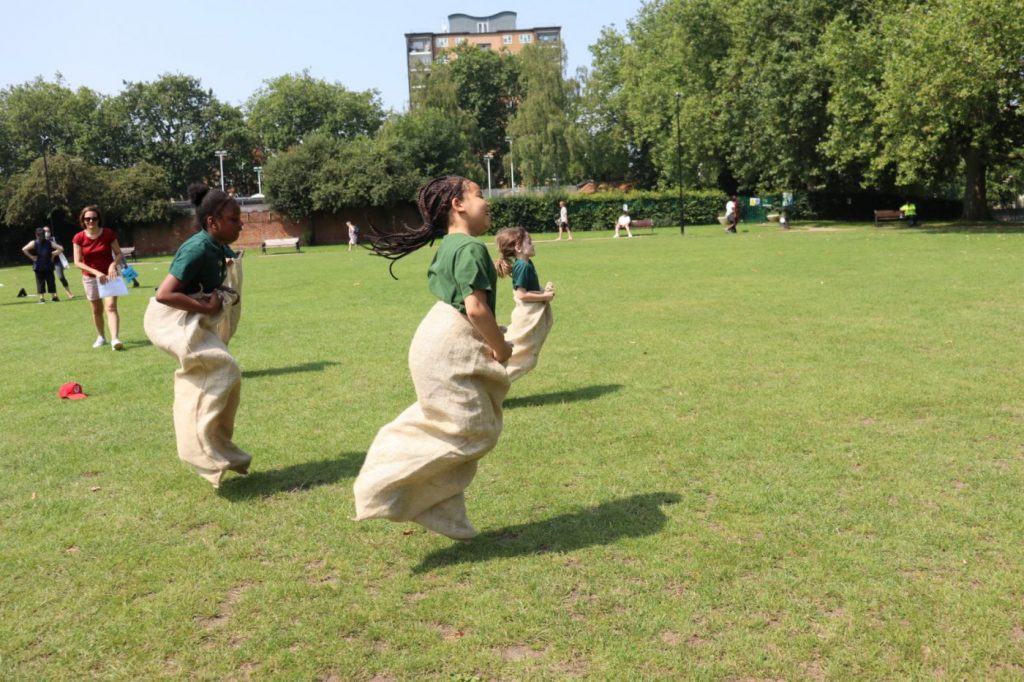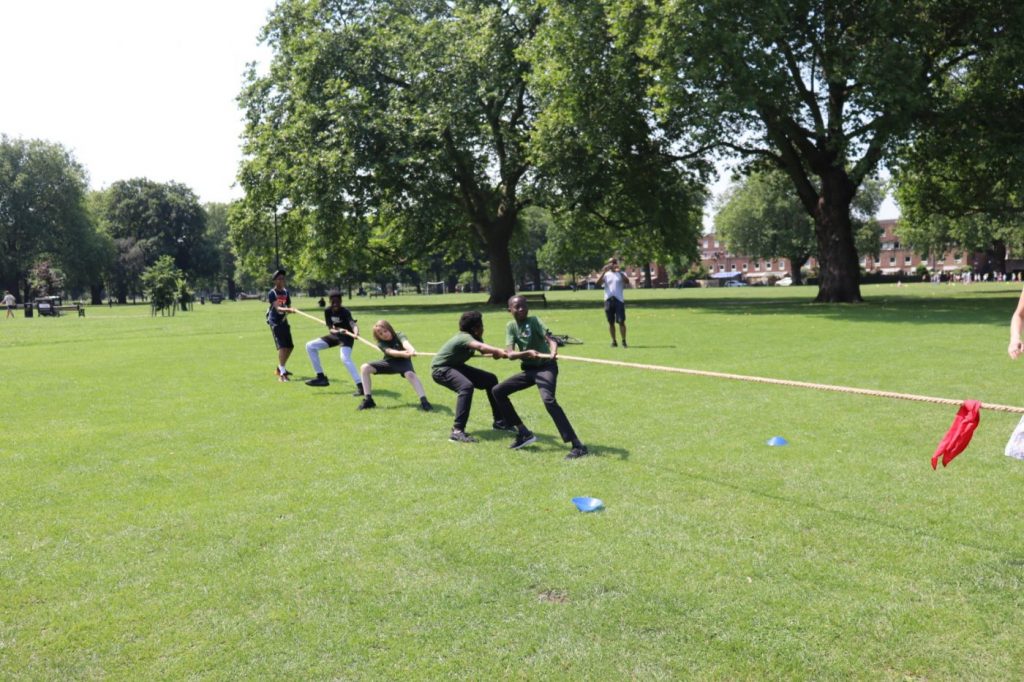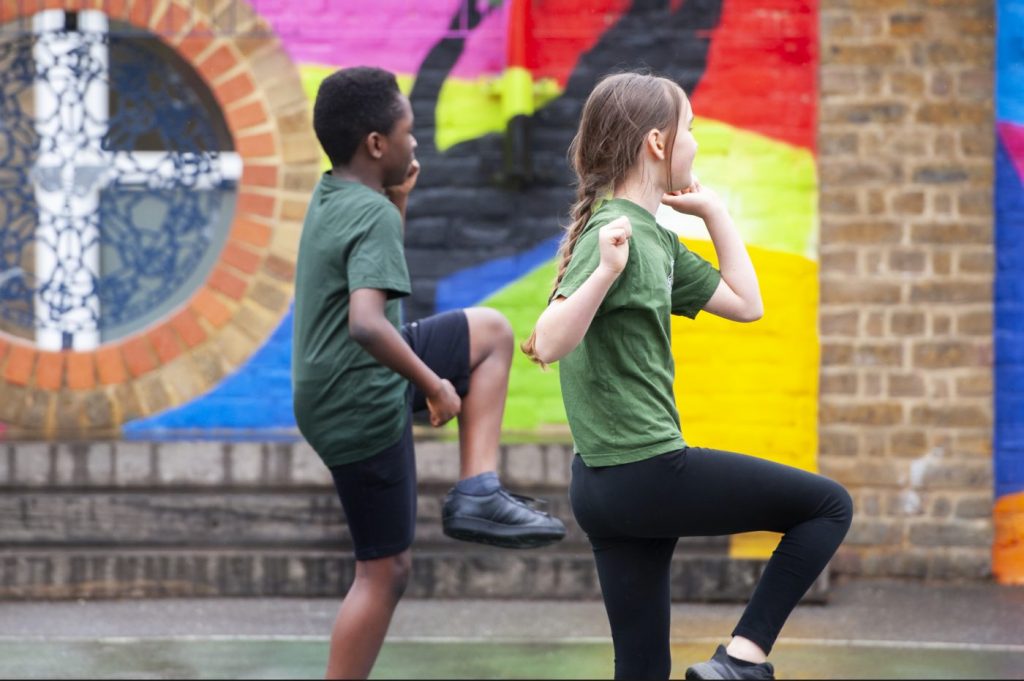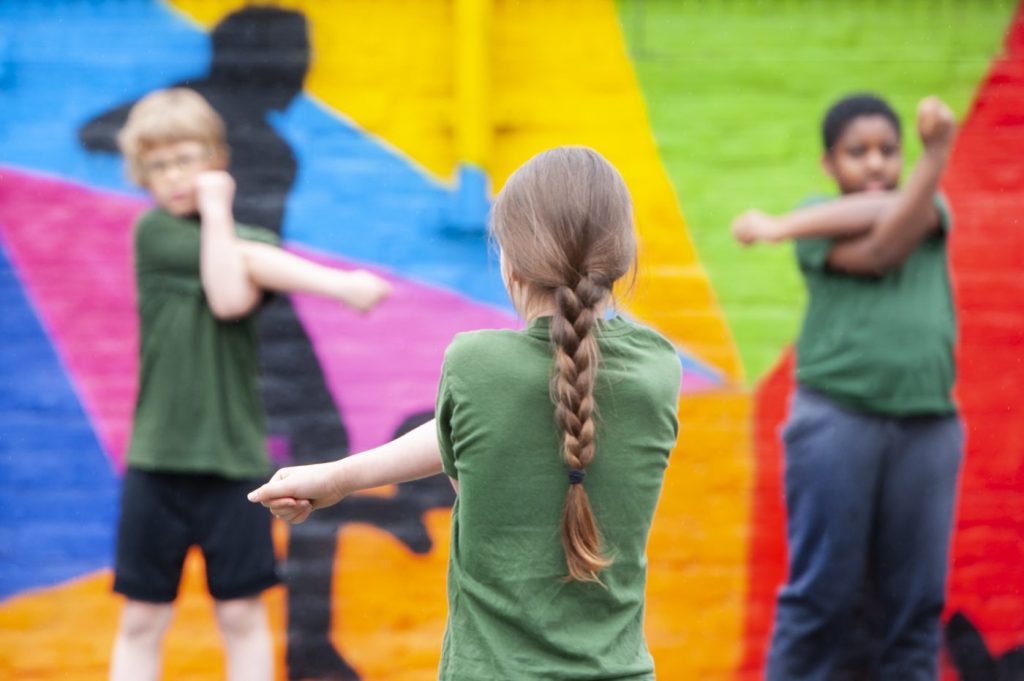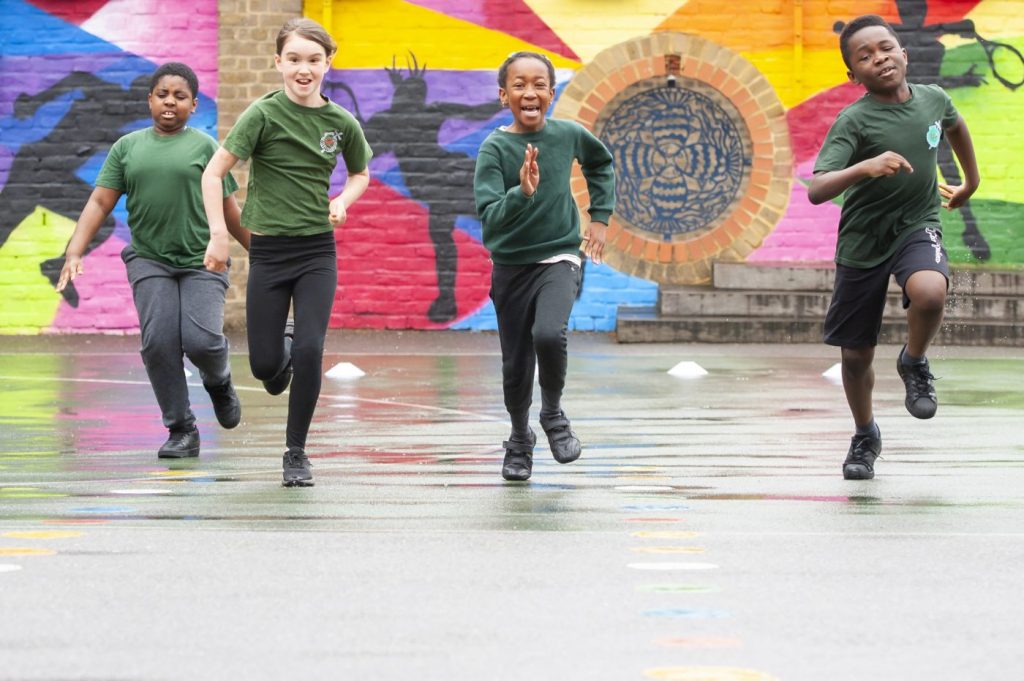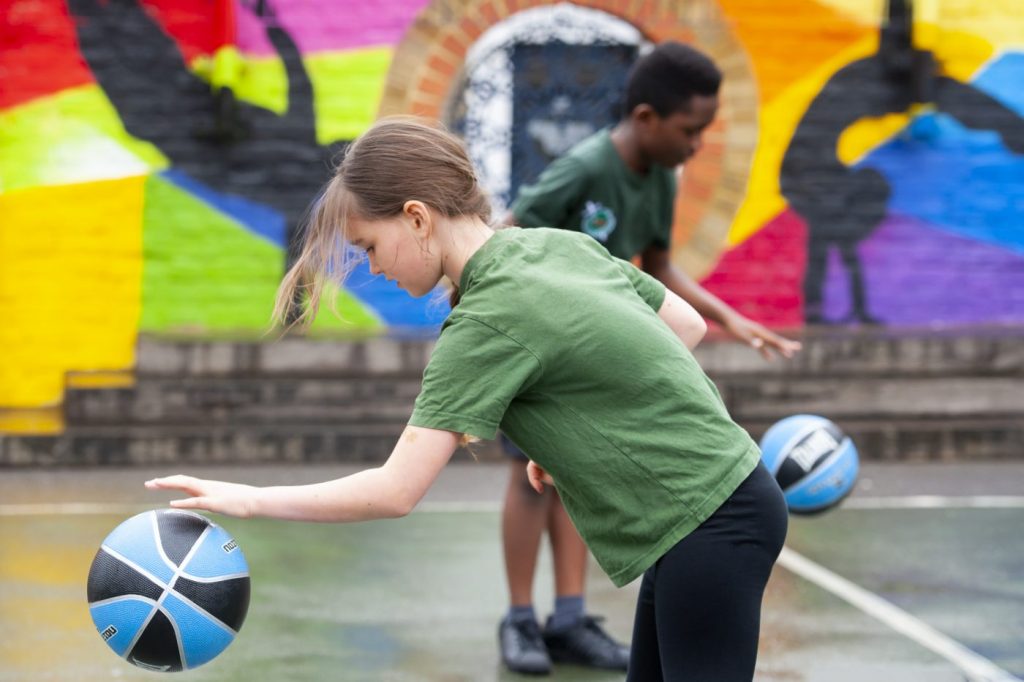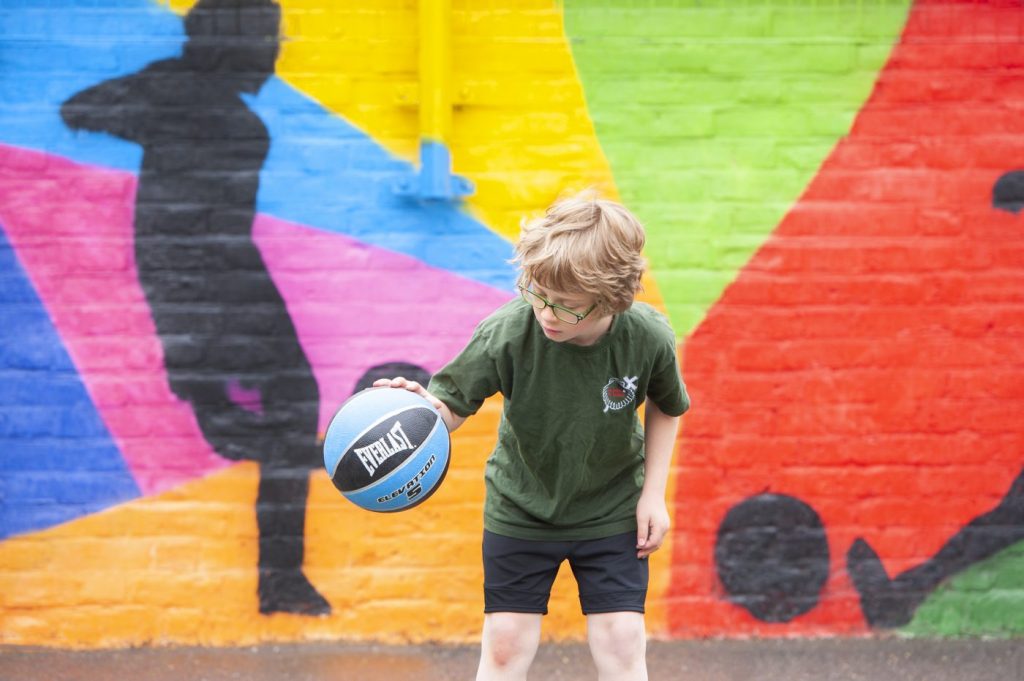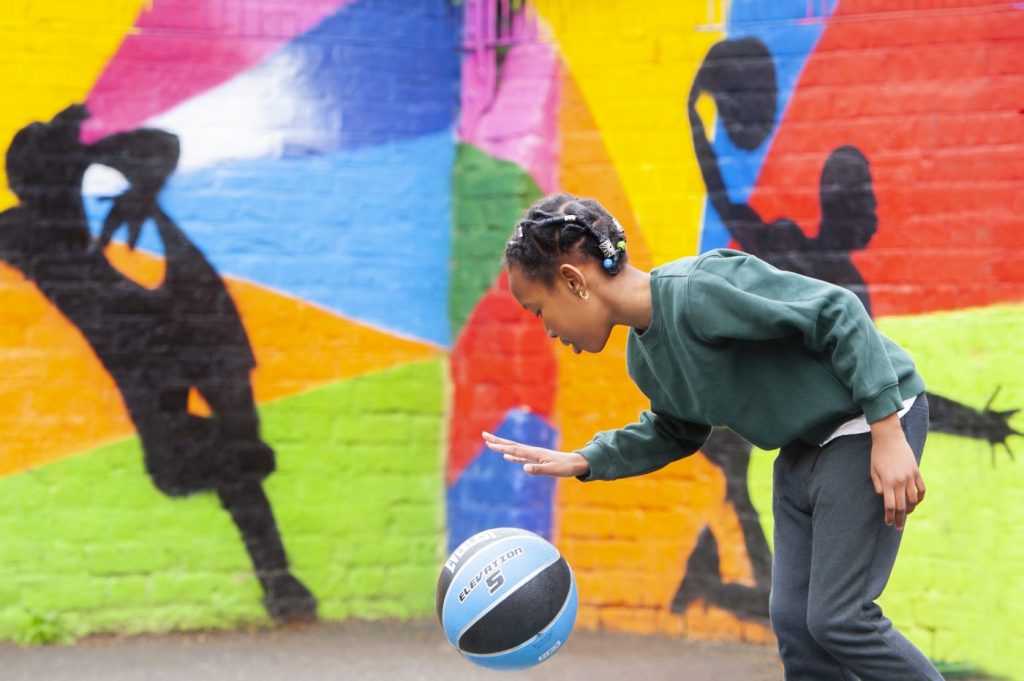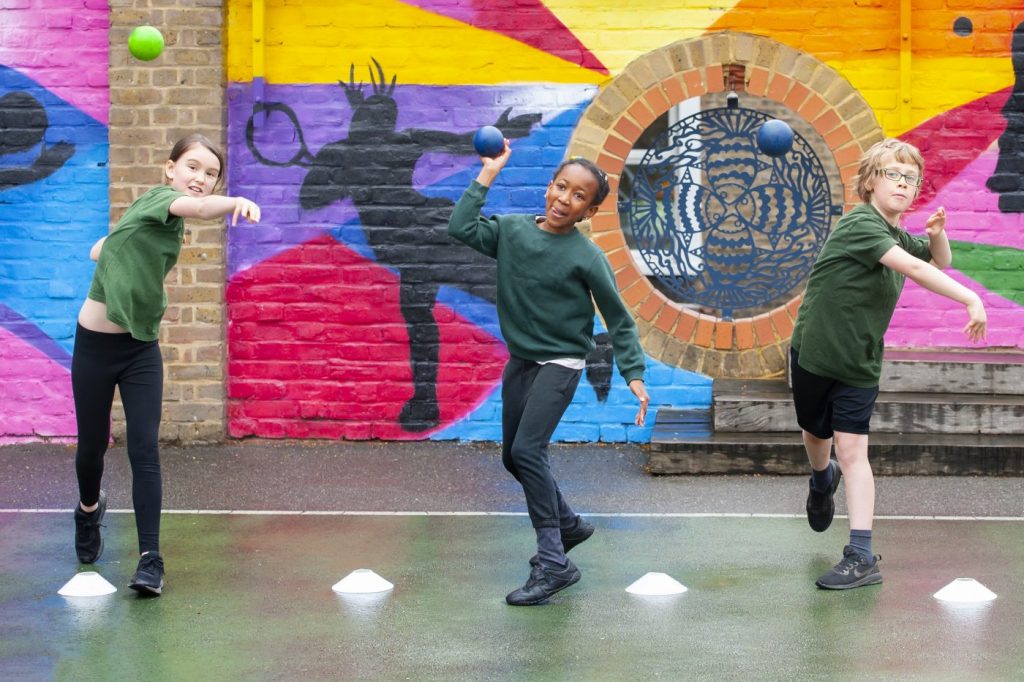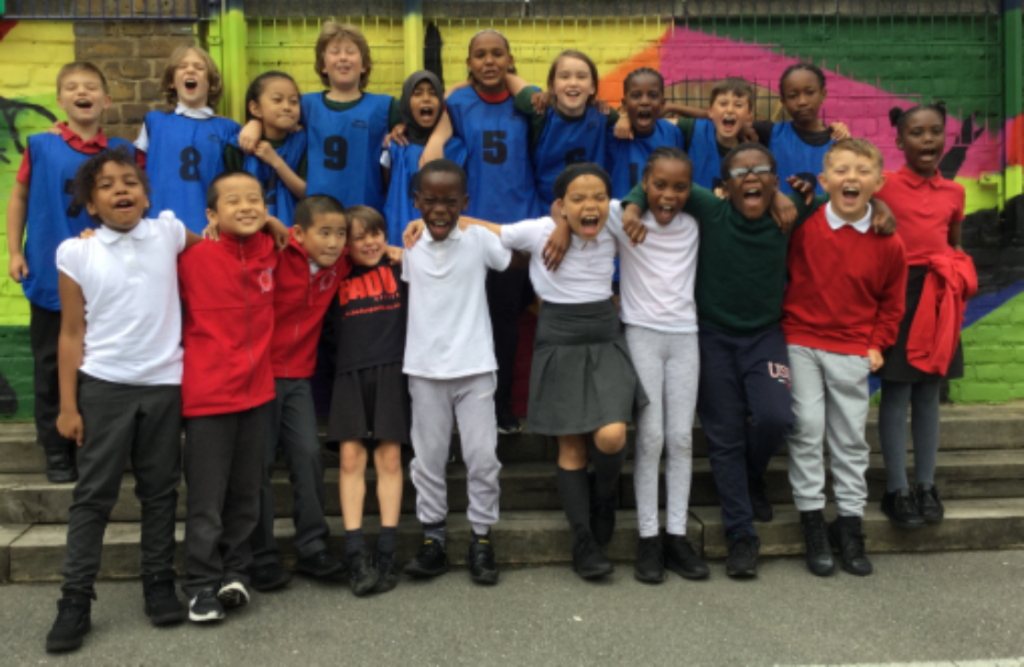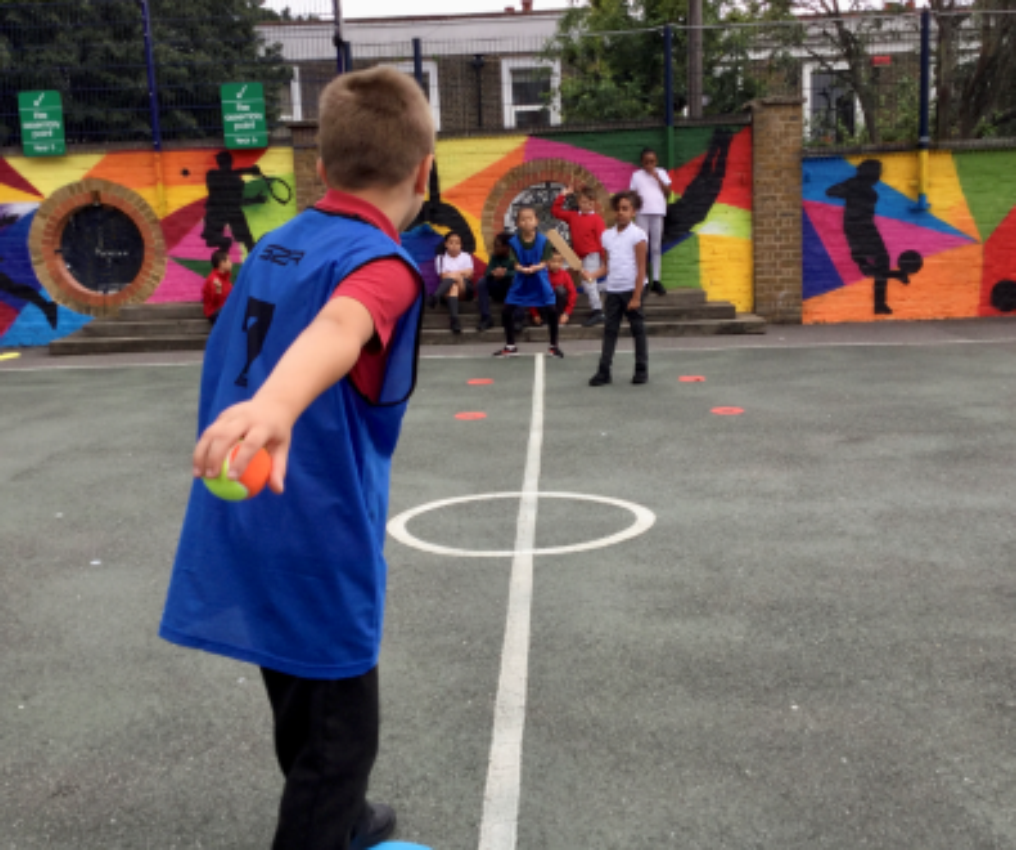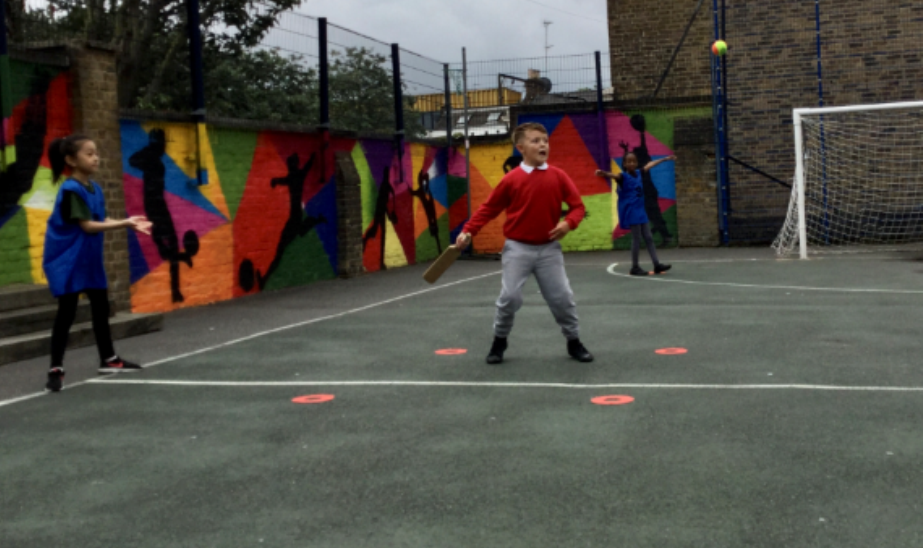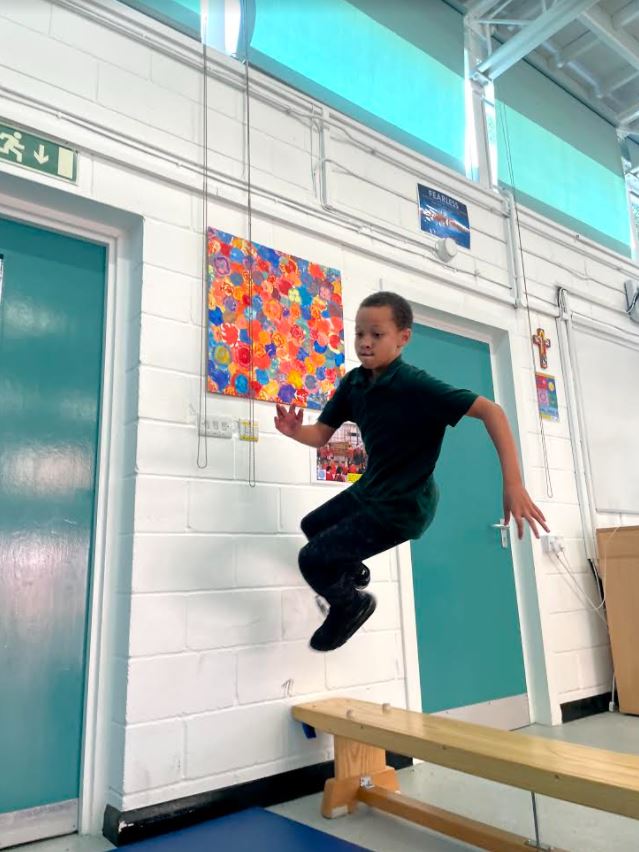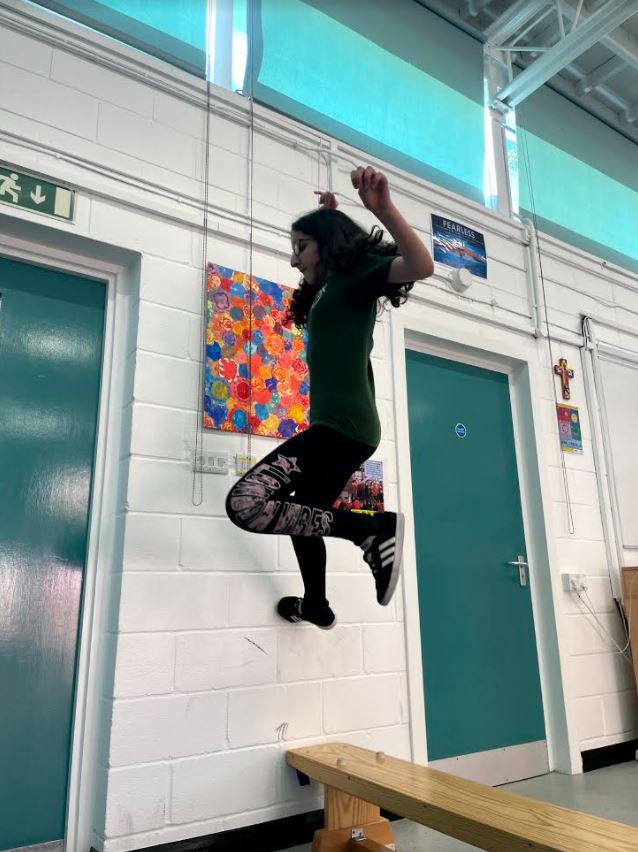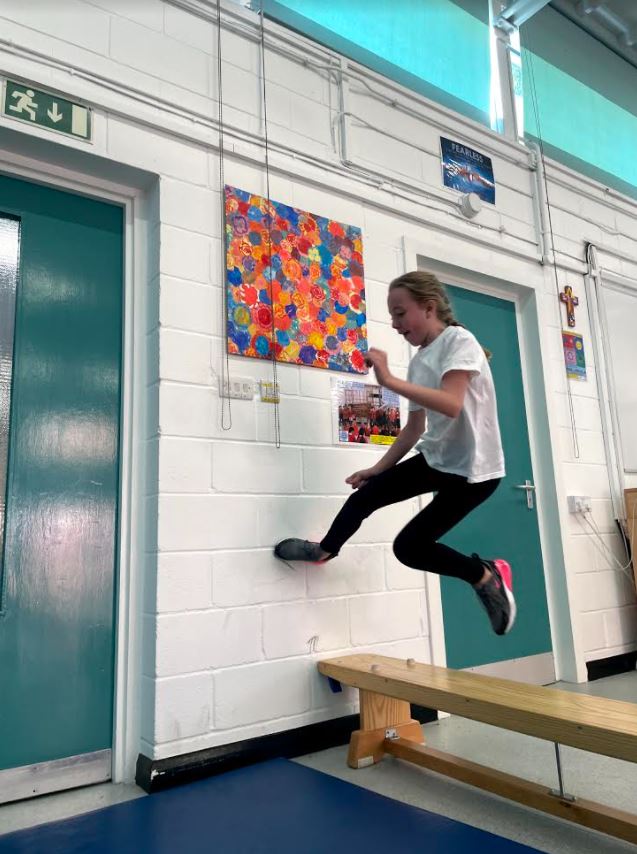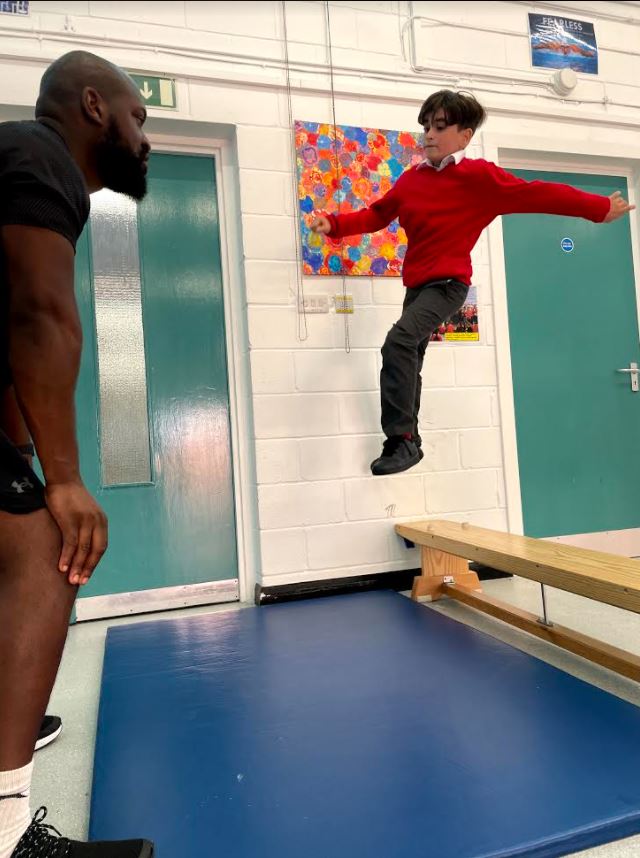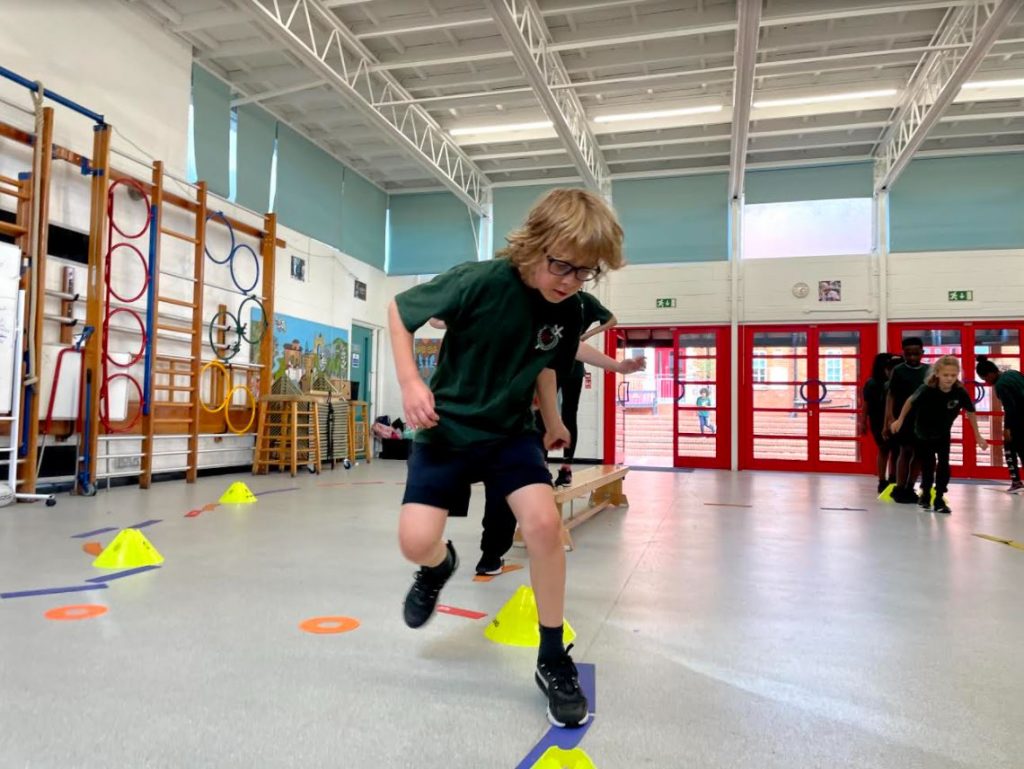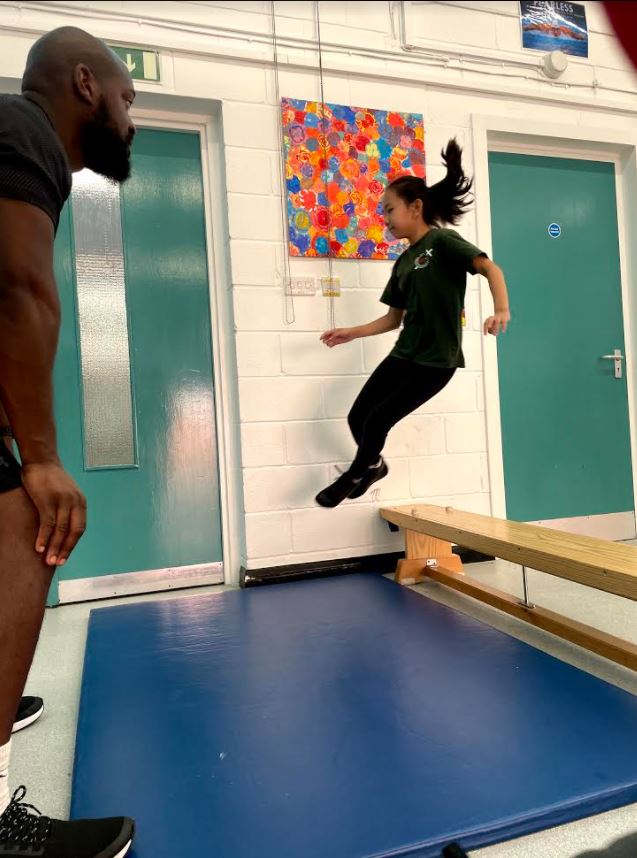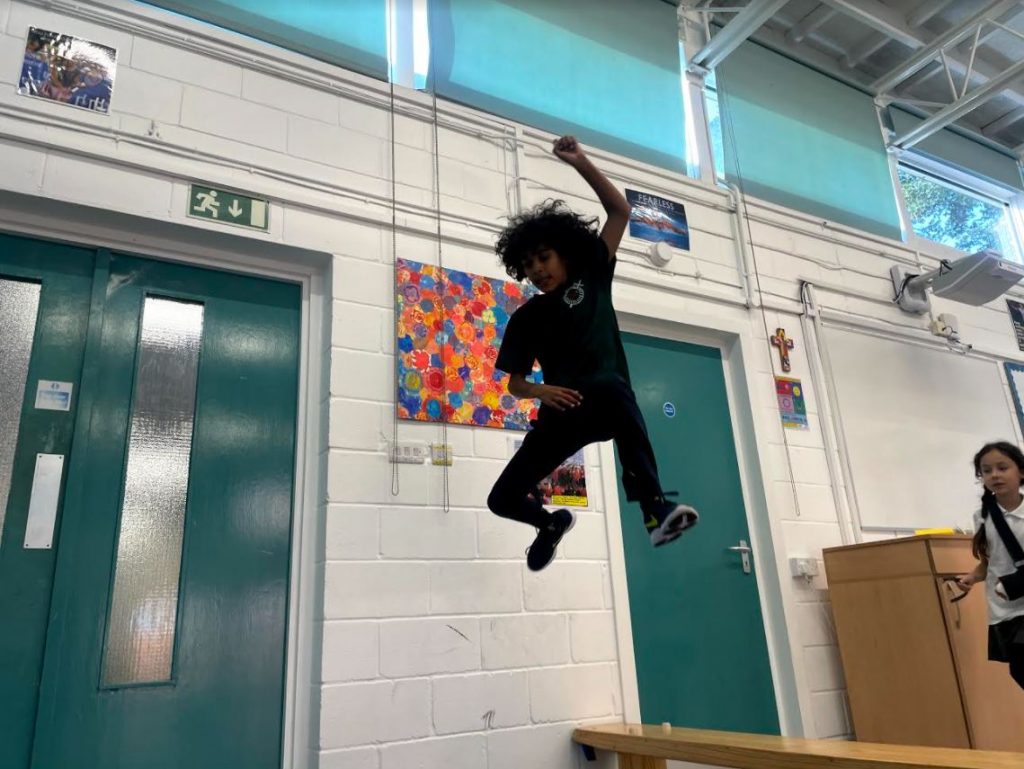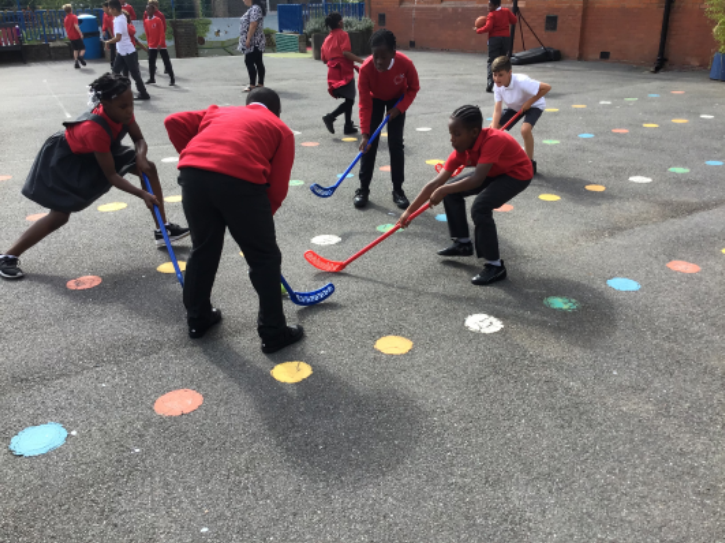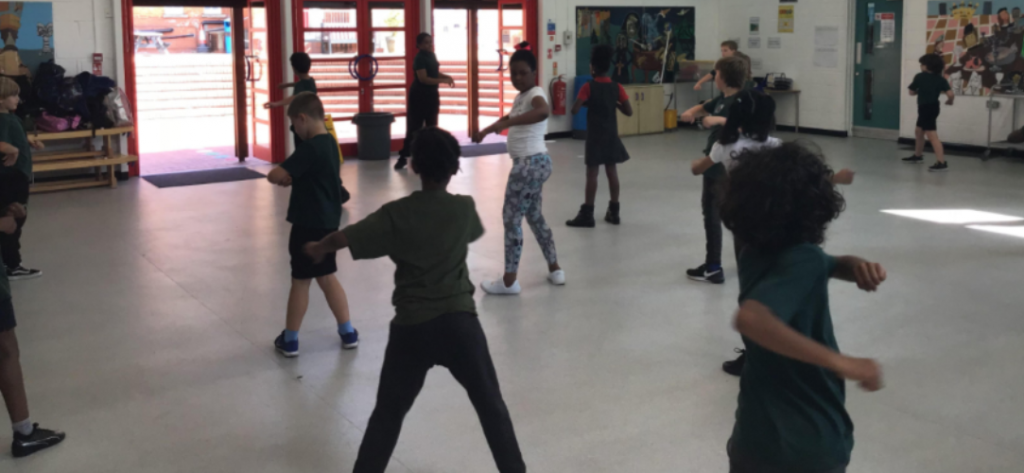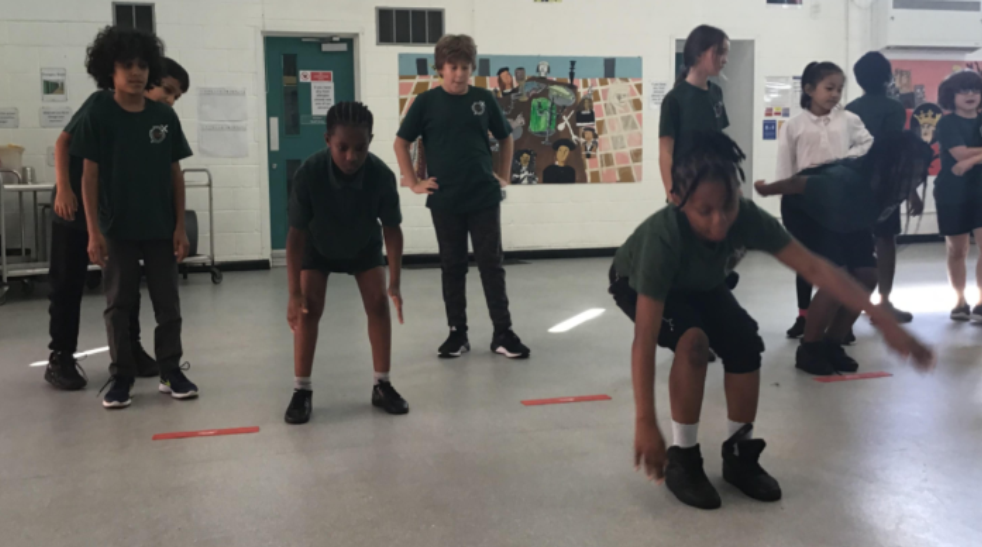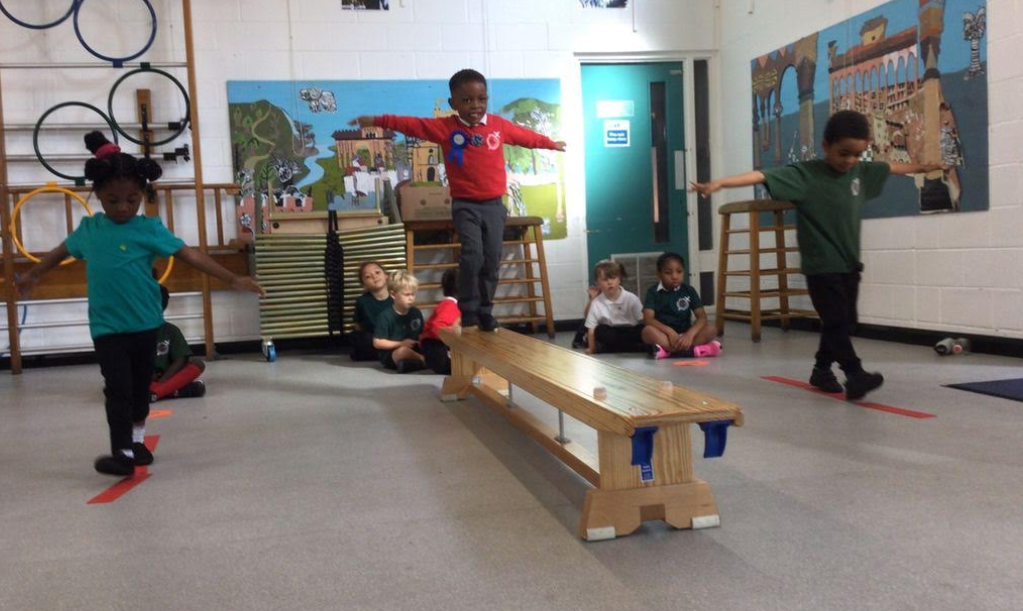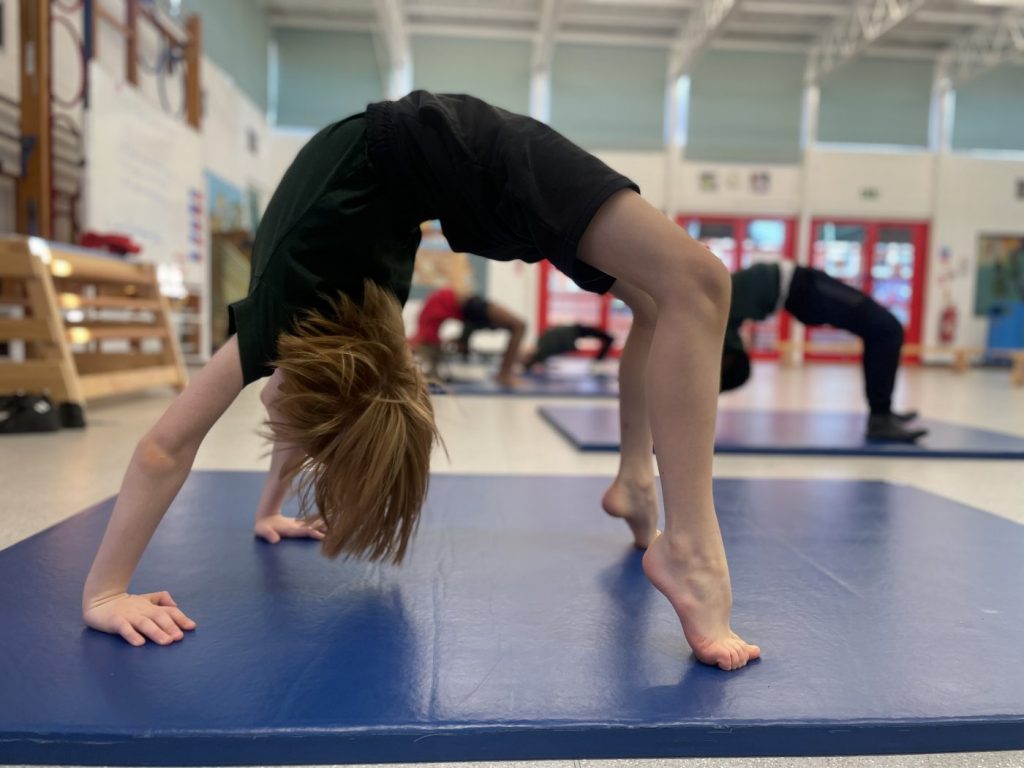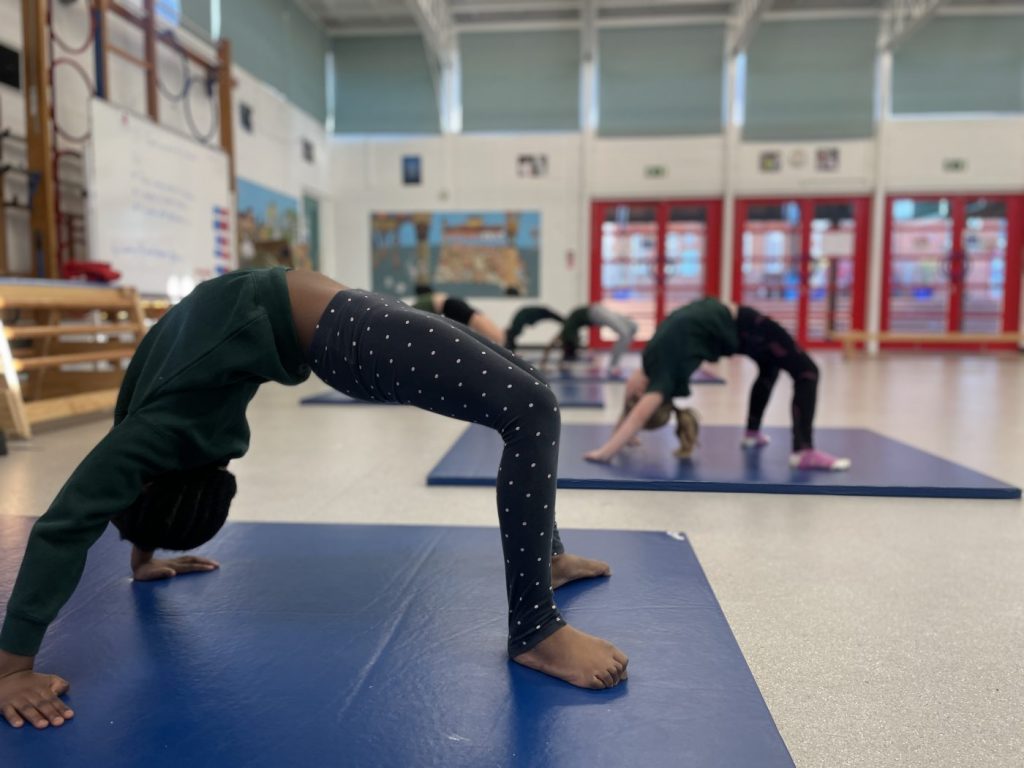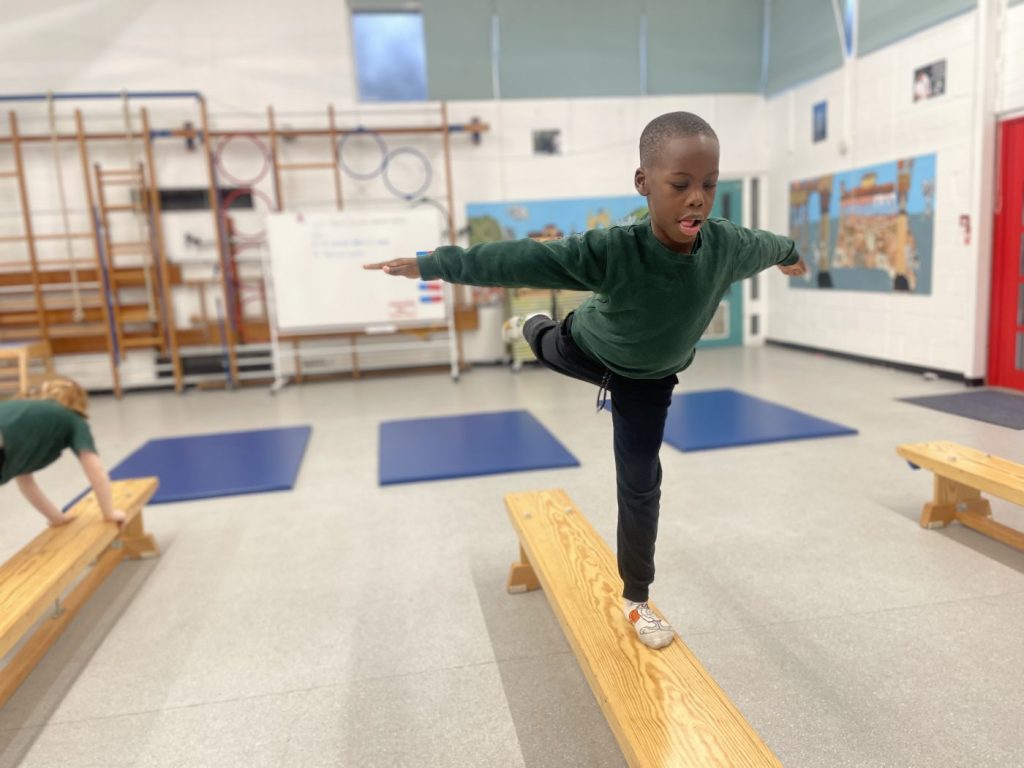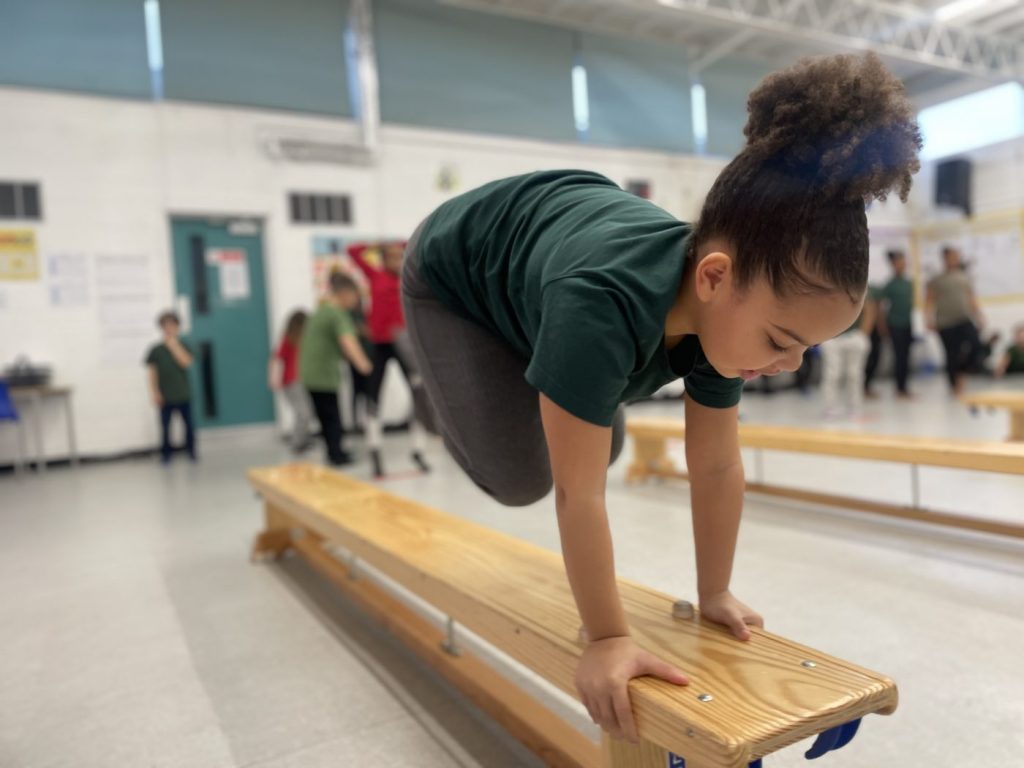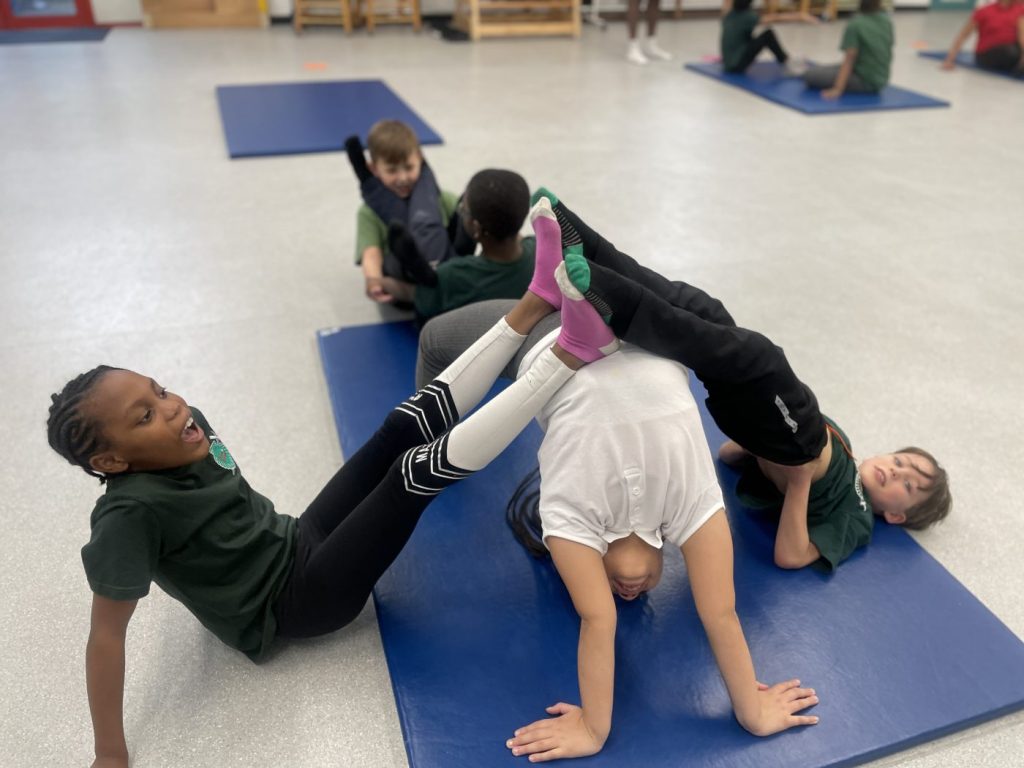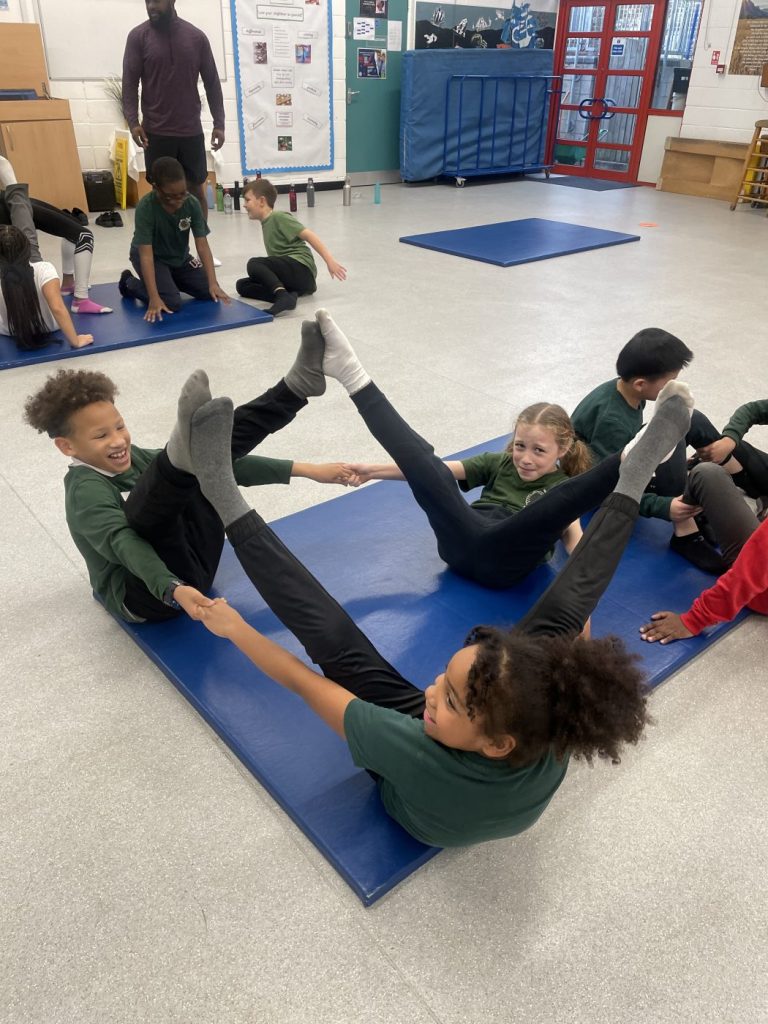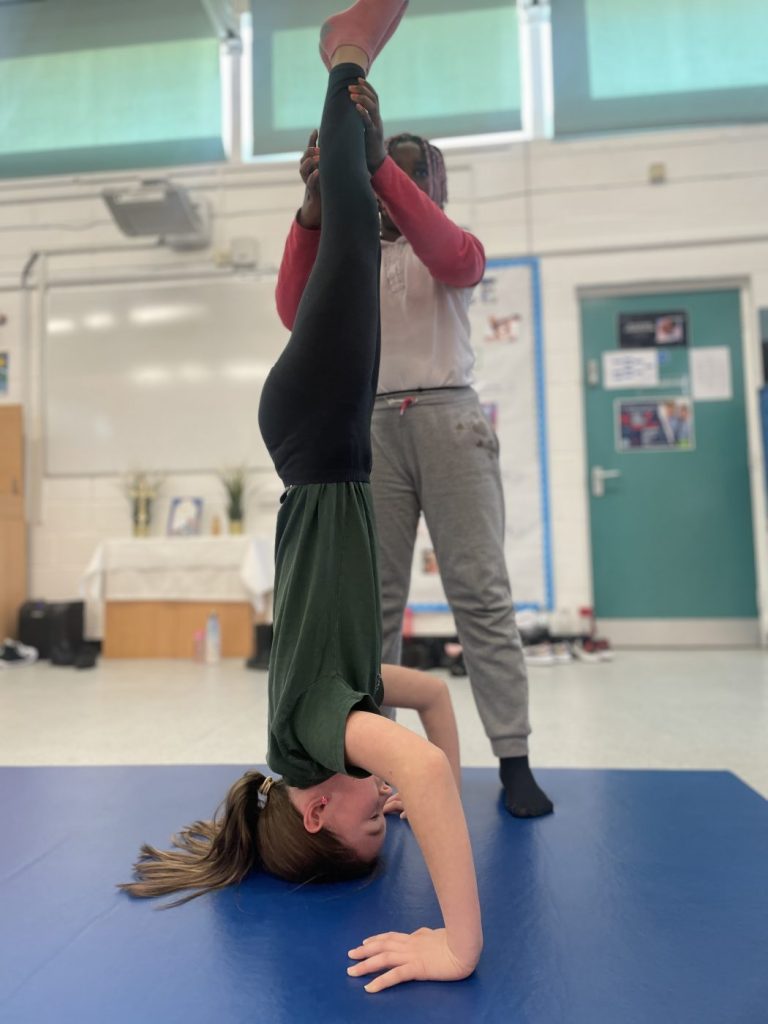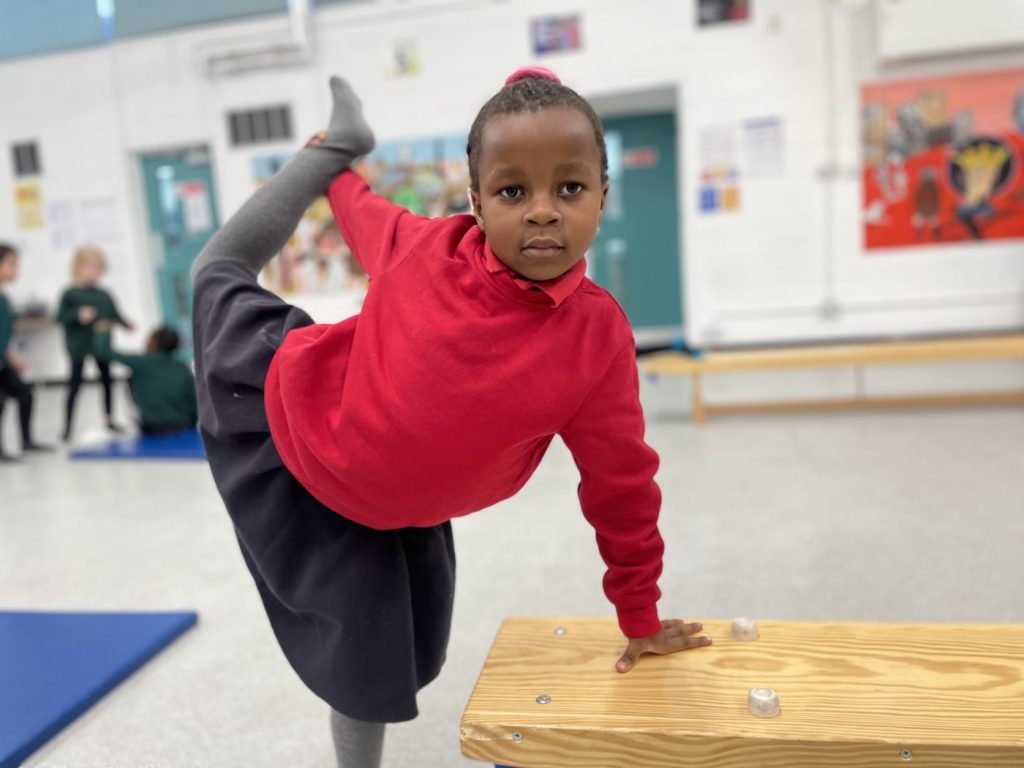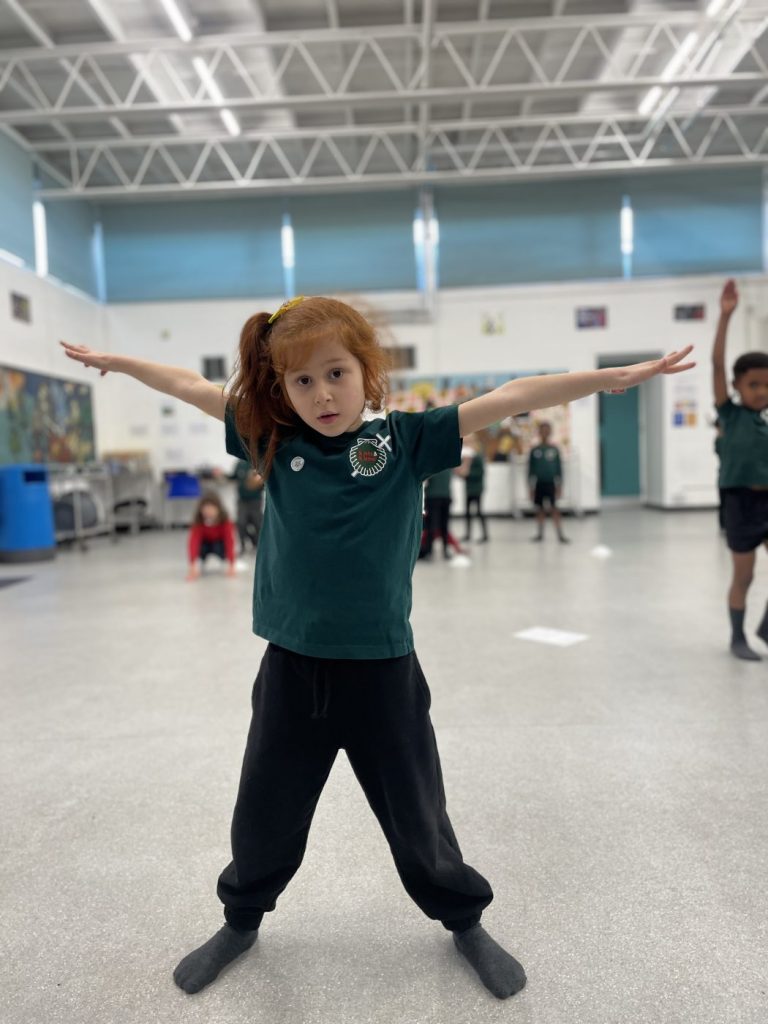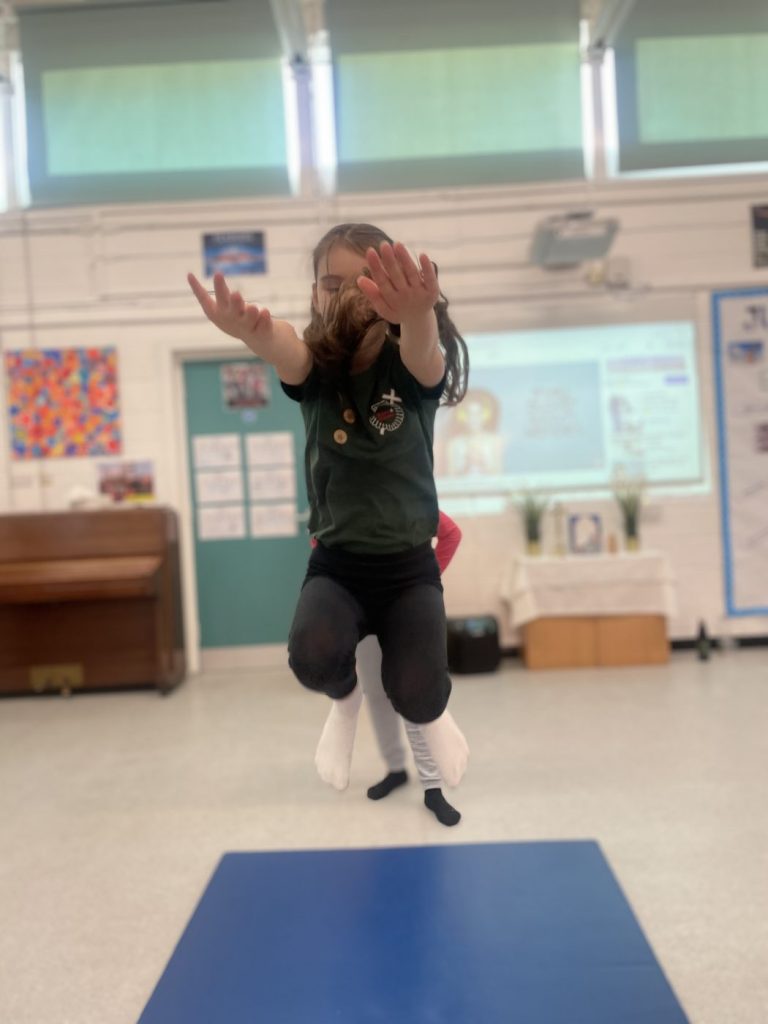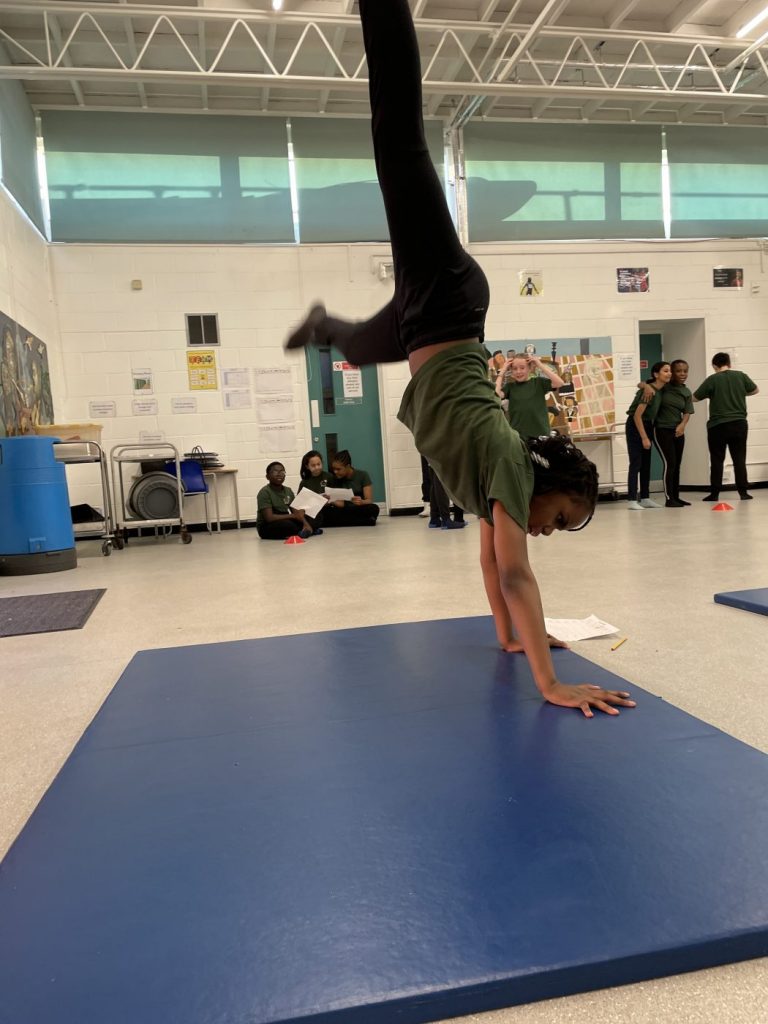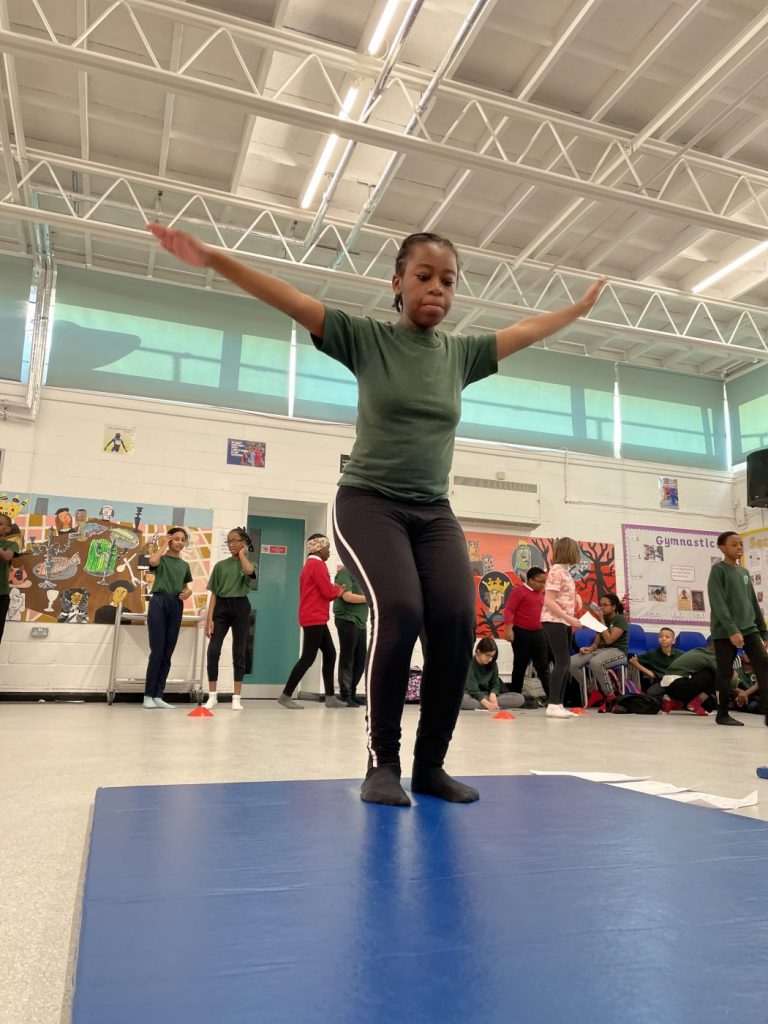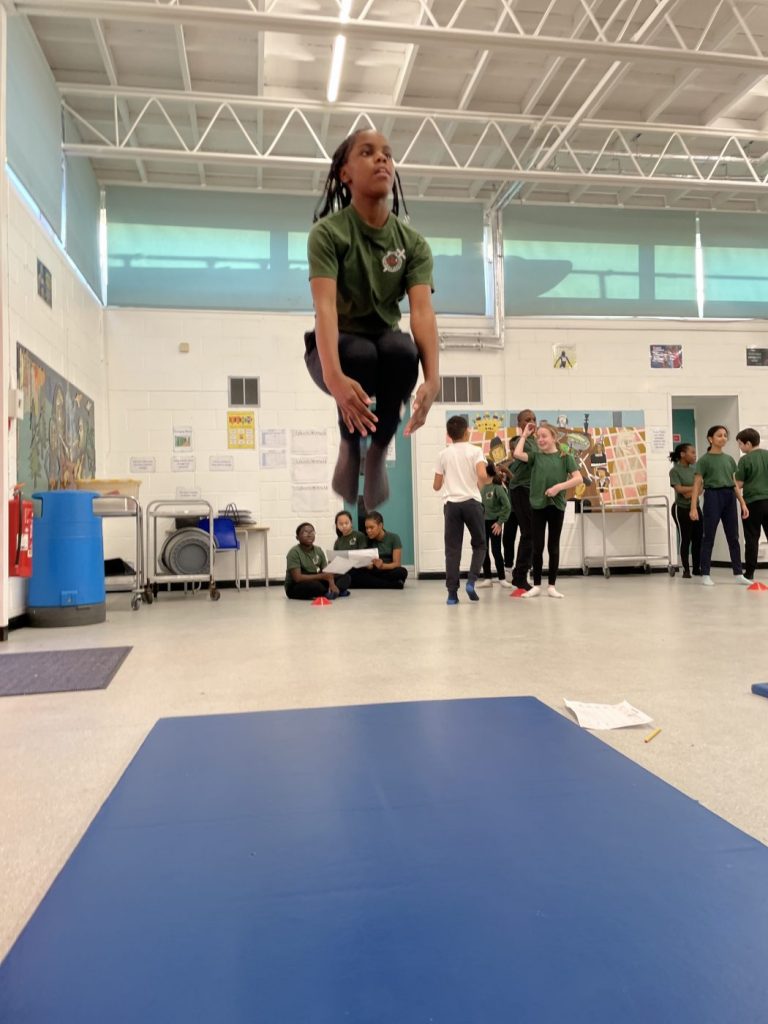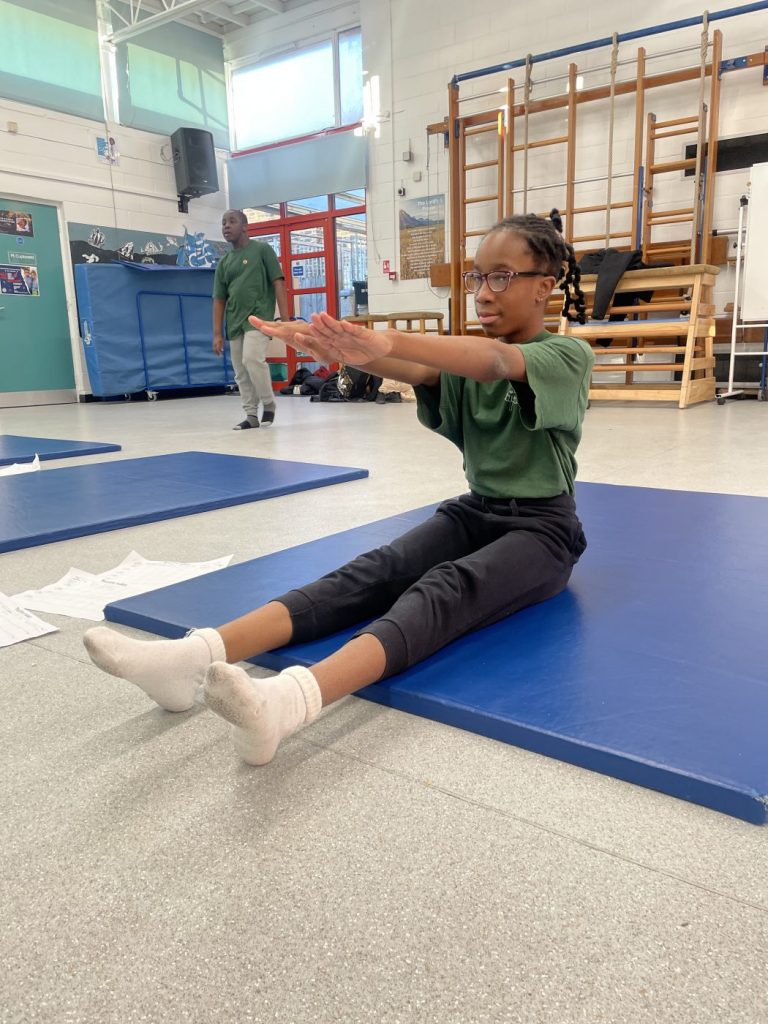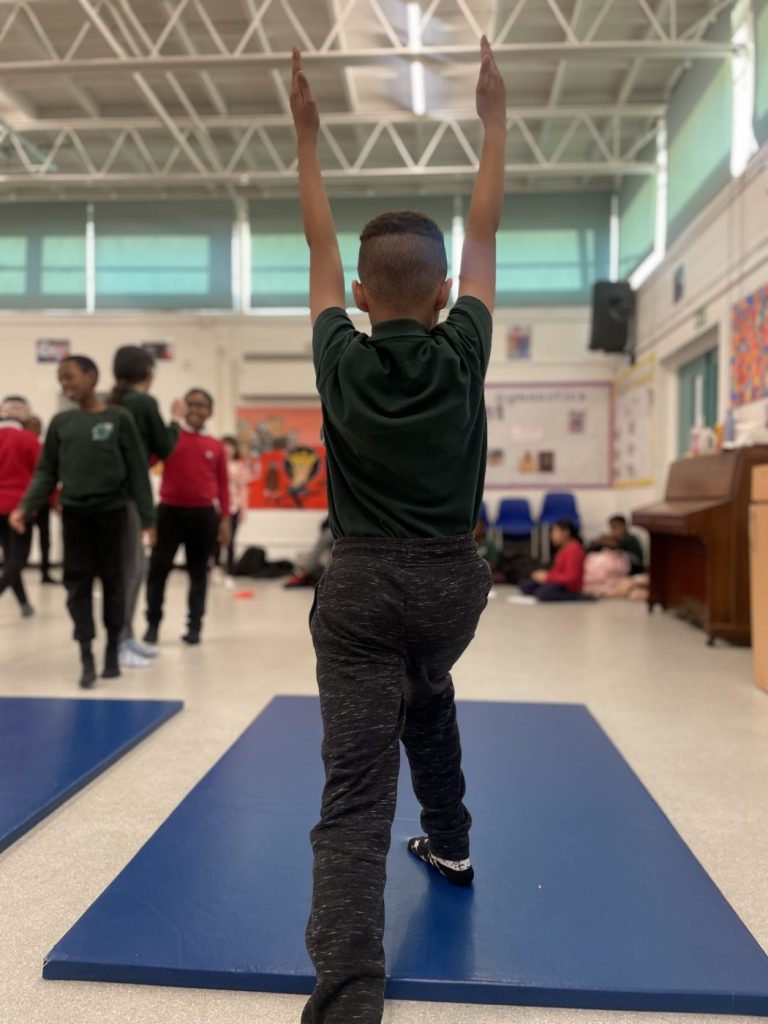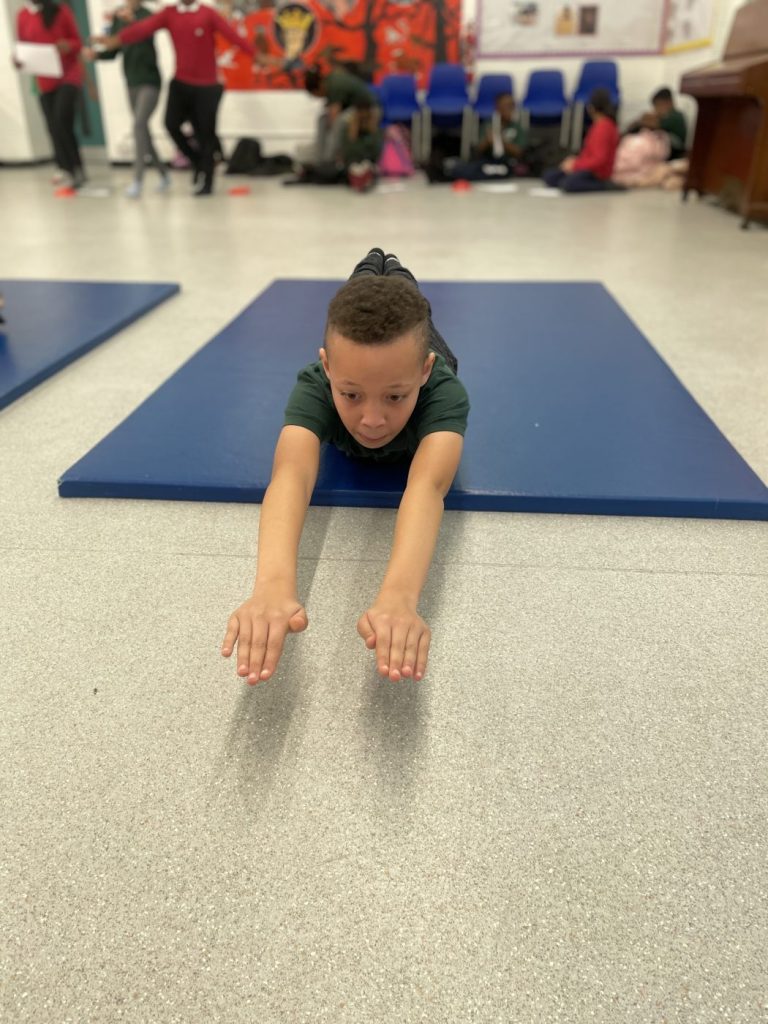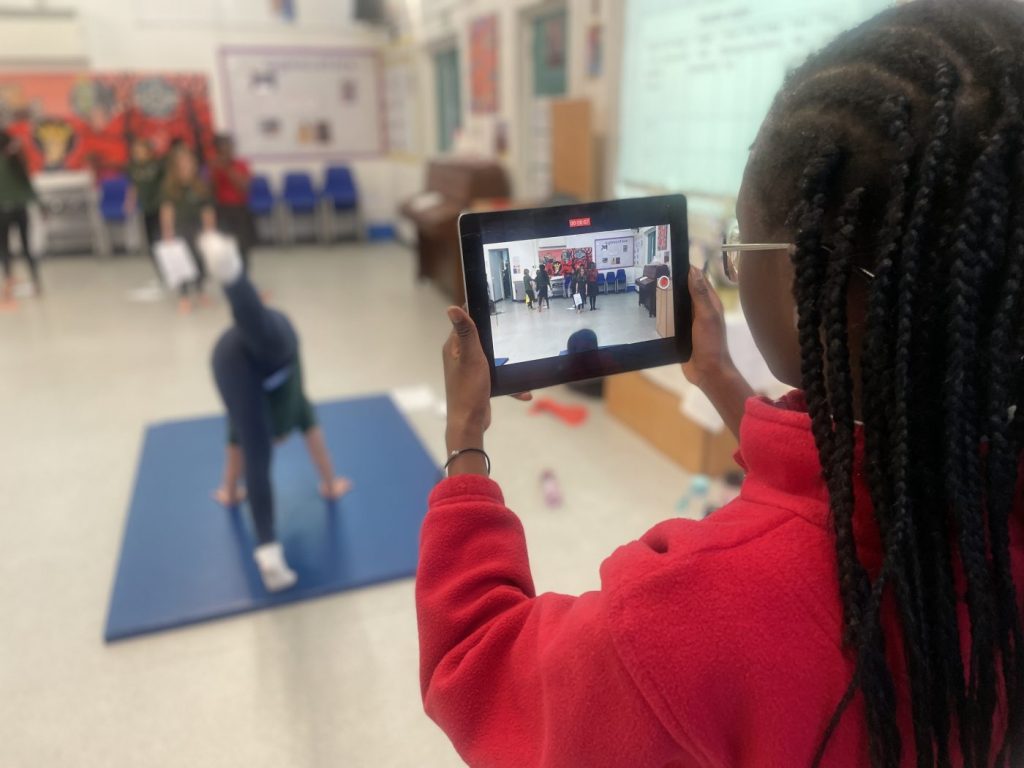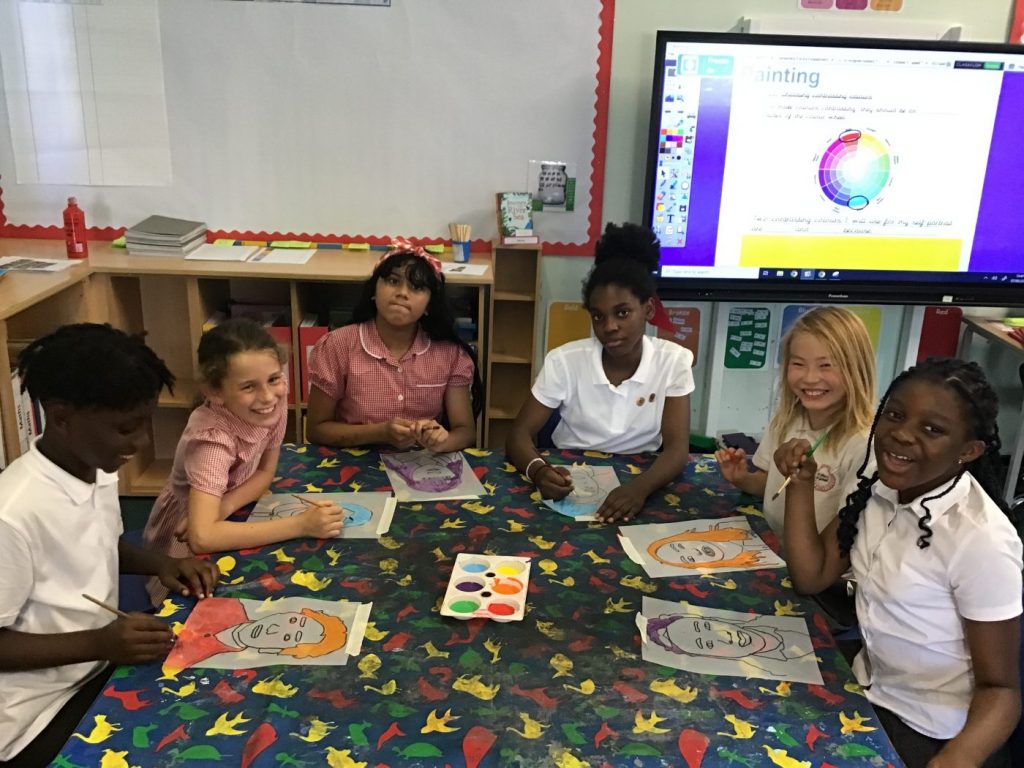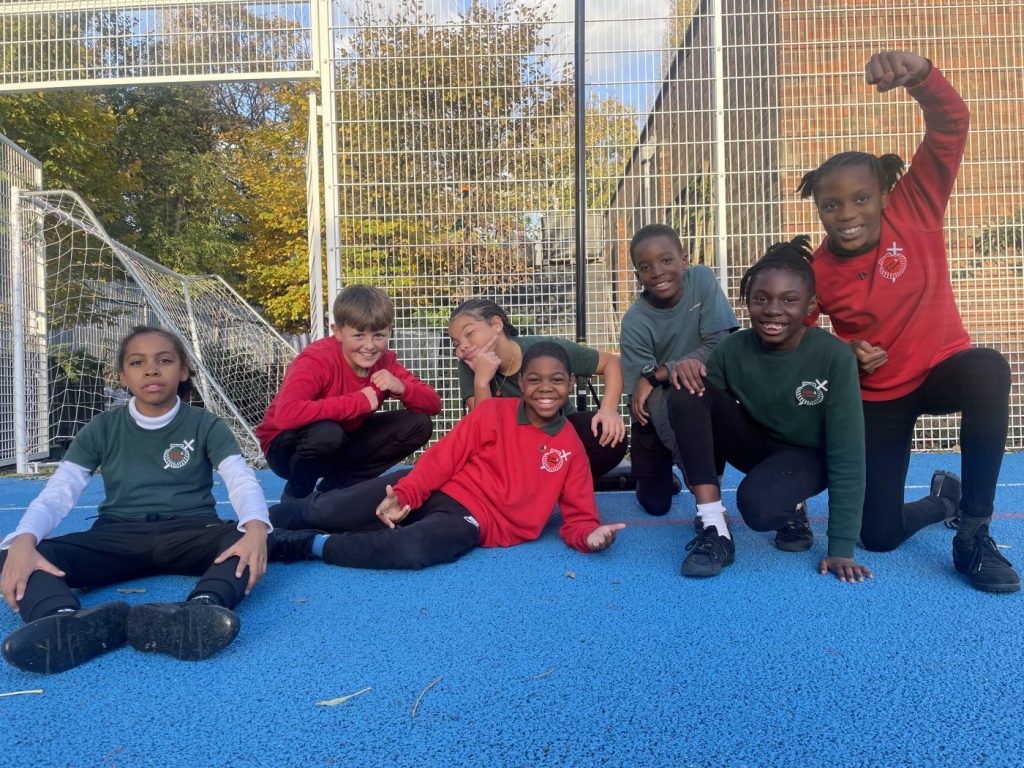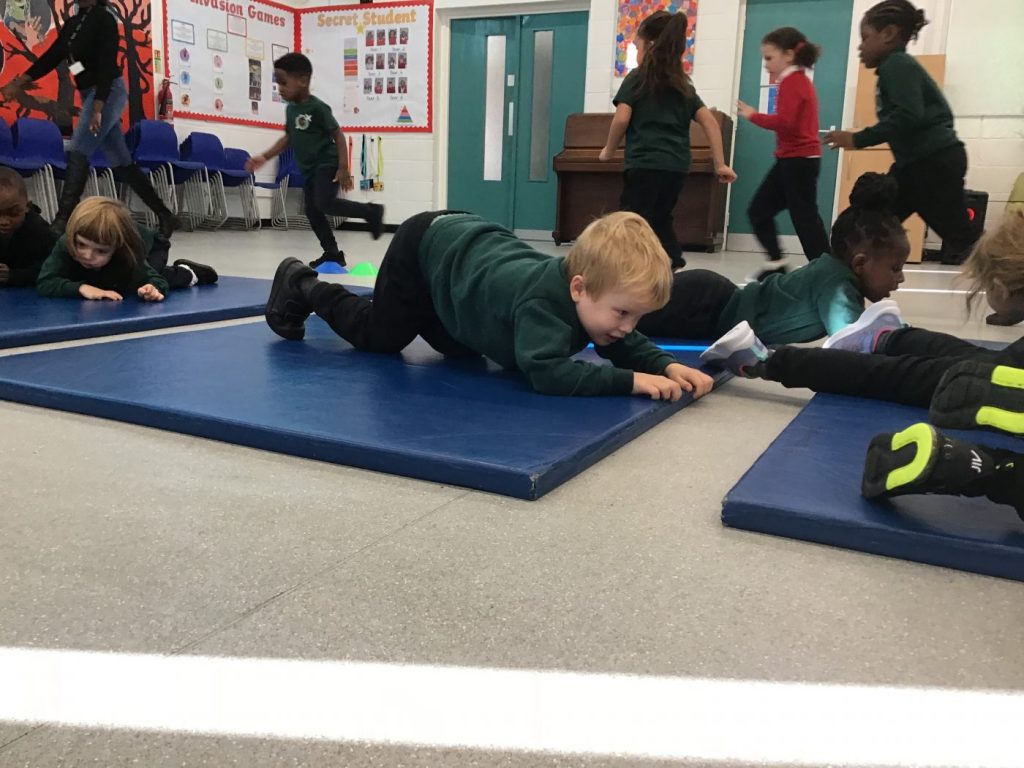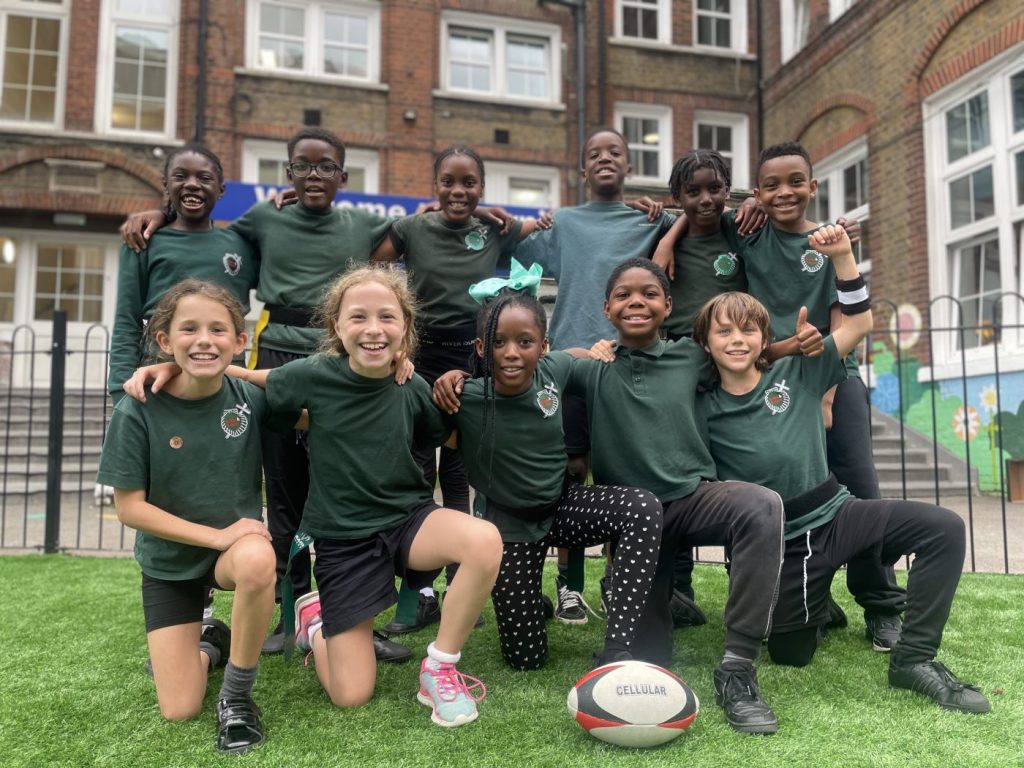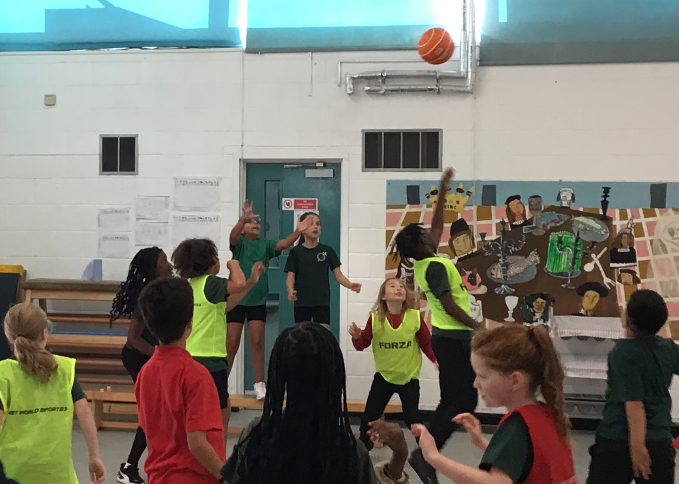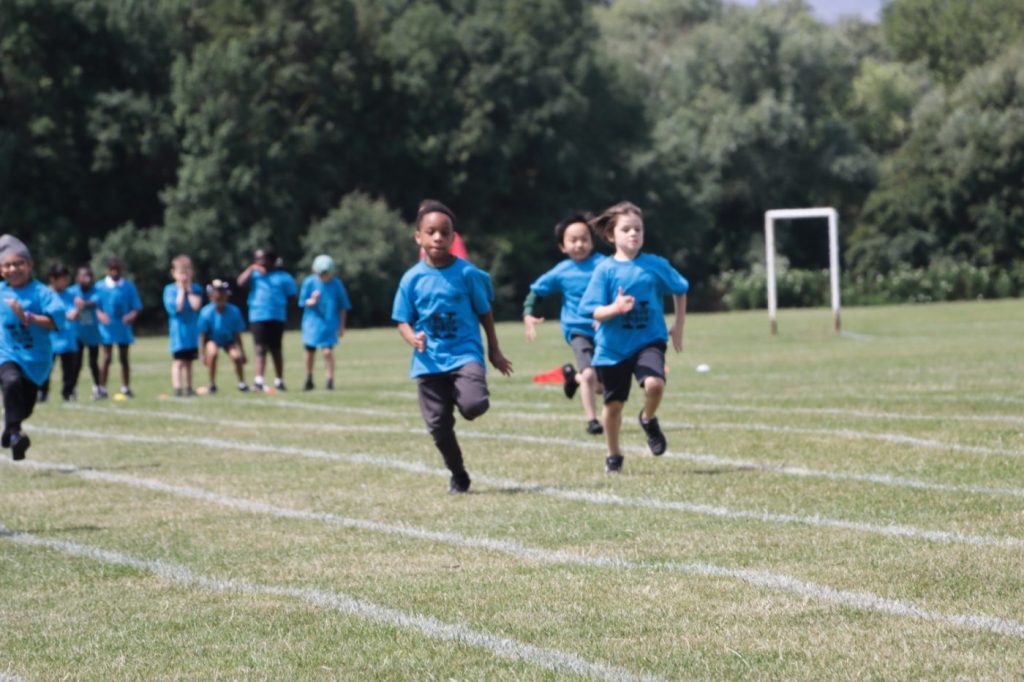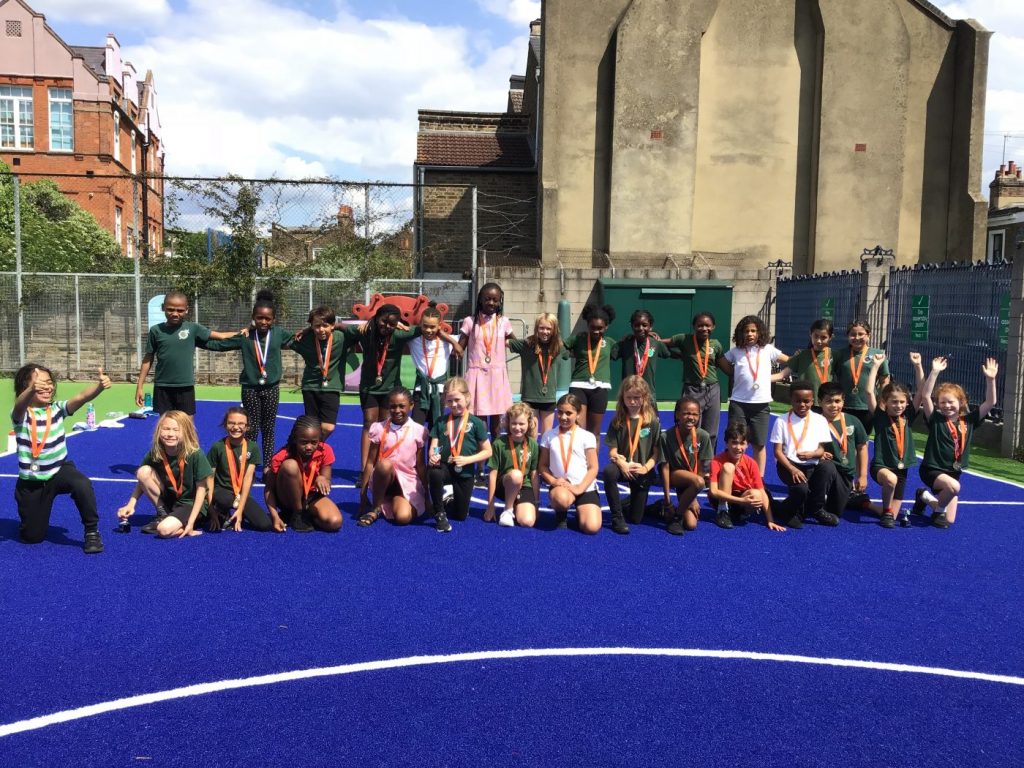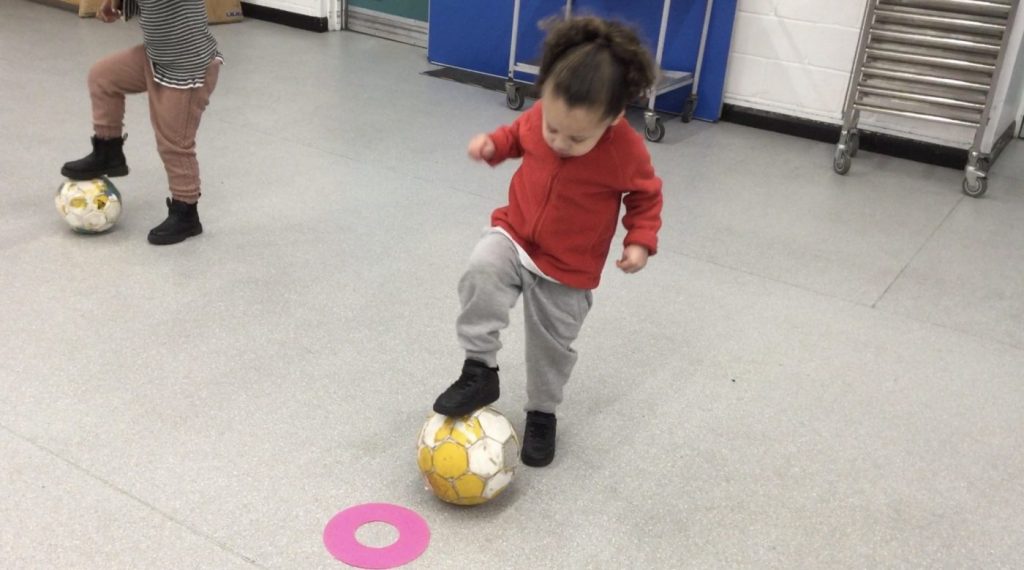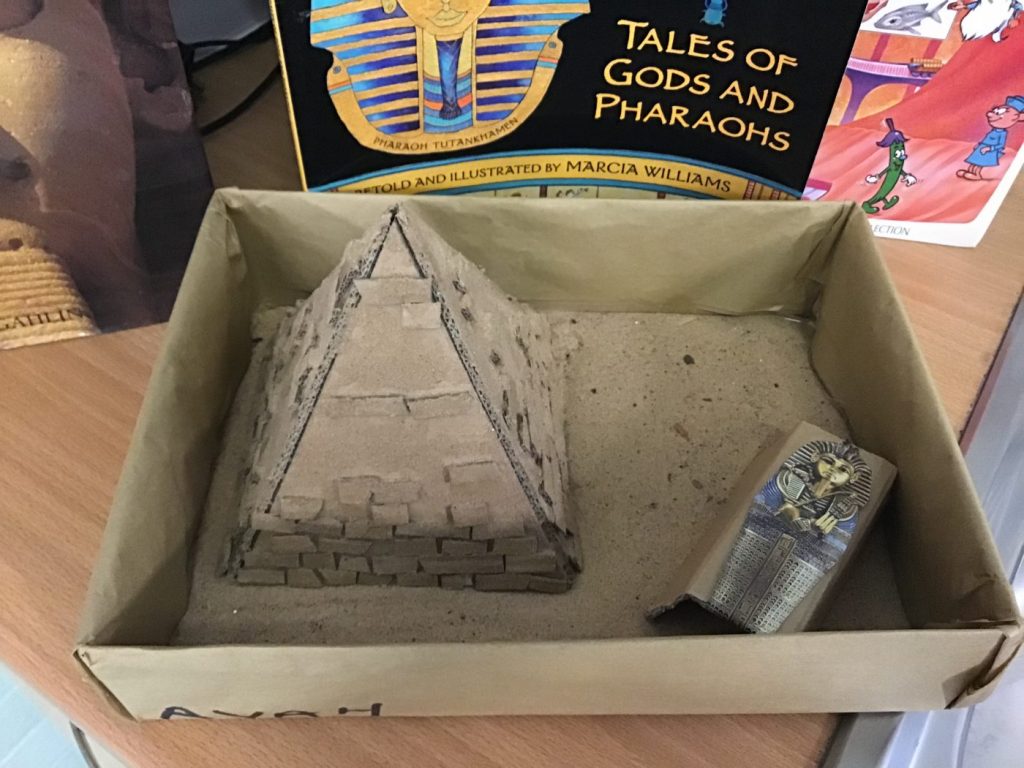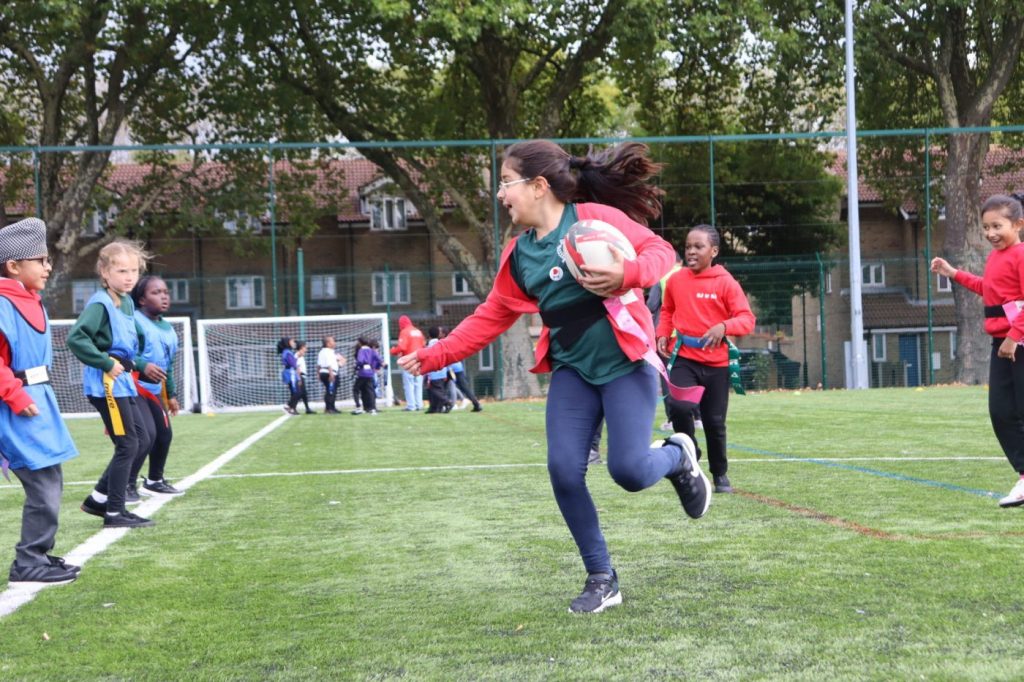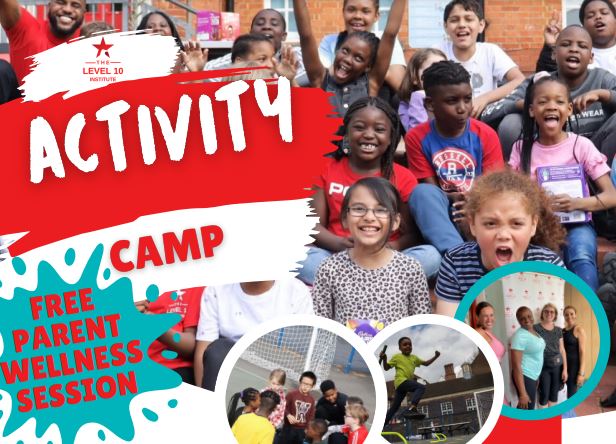Implementation
Early Years
In The Early Years physical development is a valued part of everyday learning. Pupils are exposed to a range of indoor and outdoor activities around their classroom setting. Children learn to navigate small and large obstacles safely. Nursery P.E is delivered in 1-hour weekly lessons, by their class teacher. In these lessons, children revise fundamental movements and ball skills of sending, receiving and striking with equipment. Reception P.E is delivered in 1-hour weekly slots by our specialist P.E Coach. In these lessons, pupils refine their fundamental movement skills and improve the fluidity of their movements. Pupils learn to send and receive a wider range of objects with a partner. Pupils also learn to gain greater control of their striking movements. Reception children also learn about changes in their breathing and heartbeat in, as well as “getting loose” (stretching) in preparation for warming up and stretching in KS1.
Key Stage One and Two
In Key Stage One and Two, P.E is delivered in 2-hour weekly lessons with the exception of year 1; their lessons are split into two 1-hour weekly sessions.
Key Stage One lessons are designed to build on the fluidity of fundamental movement skills and using sending receiving skills in combination with them. All lessons start with a recap on previous learning, pupils then take part in an adult-led pulse raiser and child led dynamic stretches. On completion of the warm-up, an introduction to new learning commences, this will include the learning intention, success criteria, key vocabulary and the benefit of the learning in sport and the wider world. Pupils separate into their ability based groups to do their starter activity; this activity will allow pupils to work on some of the basic skills required in the lesson in a highly engaging way. Starter activities are often done as an individual or in pairs depending on the required skills, this allows pupils to get many repetitions of a skill and be supported closely. Pupils then enter their main activities with a minimum of three main progressions throughout that period for each group. Between each main progression, pupils will engage in partner talk, a whole class discussion, peer or self-assessment. This will often be a time that good examples of work will be shown. This supports the retention of information as well as providing many opportunities to rectify any misconceptions. The main activity will lead into a small-sided game where pupils are able to use their fundamental movements, newly acquired skills and decision making in a fun and competitive environment.
All lessons end with a plenary, during the plenaries pupils give their opinion on the lesson and things they may have done differently. Finally, pupils partake in a fun game; this game will encourage the fluidity of their fundamental movements and reaffirm that physical activity can be great for learning, fun and exercise. Pupils are further encouraged by having access to a wide range of changing physical activities during their lunchtimes.
In Key Stage Two, pupils continue to develop their fundamental skills with a greater focus on decision making skills, team games and using skills combination. Pupils take part in invasion games, rhythmic activities, gymnastics, outdoor activities and swimming.
All lessons start with a recap on previous learning followed by a pupil-led pulse raiser and dynamic stretches. The learning intention, success criteria and key vocabulary are then shared with all pupils before they are split into their grouping for a pupil-led or adult led starter activity. After the starter activity pupils progress to their main activities, pupils will learn a skill unopposed to varying degrees; they will then practice this skill at a higher intensity or with passive opposition depending on the skill. Finally, pupils participate in a conditioned small-sided game where their decision-making skills and consistency of skills are tested. During small-sided games, pupils that are not actively involved will assume the roles of officials, coaches, analysts, videographers, news reporter and timekeepers. These roles encourage pupils to stay engaged in the activity, consolidate knowledge and roles outside of being an athlete within physical activity.
Lessons end with a fun game that is voted for by the class, pupils will also have the option to lead the game with some support where required.
Swimming Provision
All children learn to swim in Year 6, with daily lessons over the course of two weeks. Qualified instructors teach our children at The Olympic Pool in Stratford. The lessons are differentiated to suit all levels of competence. Beginners are taught basic skills and by the end of the 2 weeks should be able to swim a width of the pool successfully. Children who already have some swimming ability are given the opportunity to increase their knowledge and skills by practising different strokes and skills such as treading water and picking up objects from the bottom of the pool.
Impact
Formative assessments are completed each lesson with summative assessments being completed by the delivering teacher at the end of each half term or unit of work. Each pupil will be marked as working towards, at or above the expected level against a set of key criteria. Pupils receive feedback on their progress during lessons and can access their current progress if they ask and will receive feedback on how to improve.
PE Trips, Visitors and Workshops
Throughout the year, workshops and trips are organised for each year group to further broaden the children’s experiences. Over the past few years, the children have attended Personal Best workshops and Dance workshops. Throughout the year St John & St James’ takes part in competitions, festivals and sports matches onsite and offsite. These experiences enhance the importance of teamwork, good sportspersonship and fair play. As well as inter-school competitions, we regularly take part in intra-school competitions. These go towards our School Games Mark.
What sports clubs are available at St John & St James?
St John & St James offer a wide range of sports clubs to which any child can join. We think it is important that children are as active as possible and we encourage all children to participate in extra-curricular sports. Visit our clubs page to find out more.
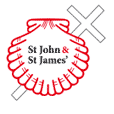
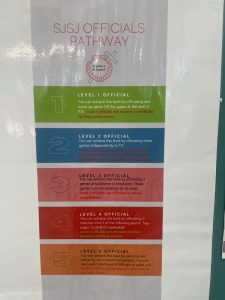 All children have the opportunity to join the ‘official’s pathway’ in school. The ‘official’s pathway’ is a programme that teaches pupils to lead, officiate and participate in sport through a range of roles such as being a football referee at lunchtime. Children progress through the pathway by completing various tasks at each level and receive a certificate once they have completed each stage. Children who achieve level 5 also have the opportunity to create their own competition, which includes budgeting, advertising, recruitment and officiating. This therefore equips children with life-long skills and prepares them for their next stage of life. Please see a copy of the pathway below…
All children have the opportunity to join the ‘official’s pathway’ in school. The ‘official’s pathway’ is a programme that teaches pupils to lead, officiate and participate in sport through a range of roles such as being a football referee at lunchtime. Children progress through the pathway by completing various tasks at each level and receive a certificate once they have completed each stage. Children who achieve level 5 also have the opportunity to create their own competition, which includes budgeting, advertising, recruitment and officiating. This therefore equips children with life-long skills and prepares them for their next stage of life. Please see a copy of the pathway below… 